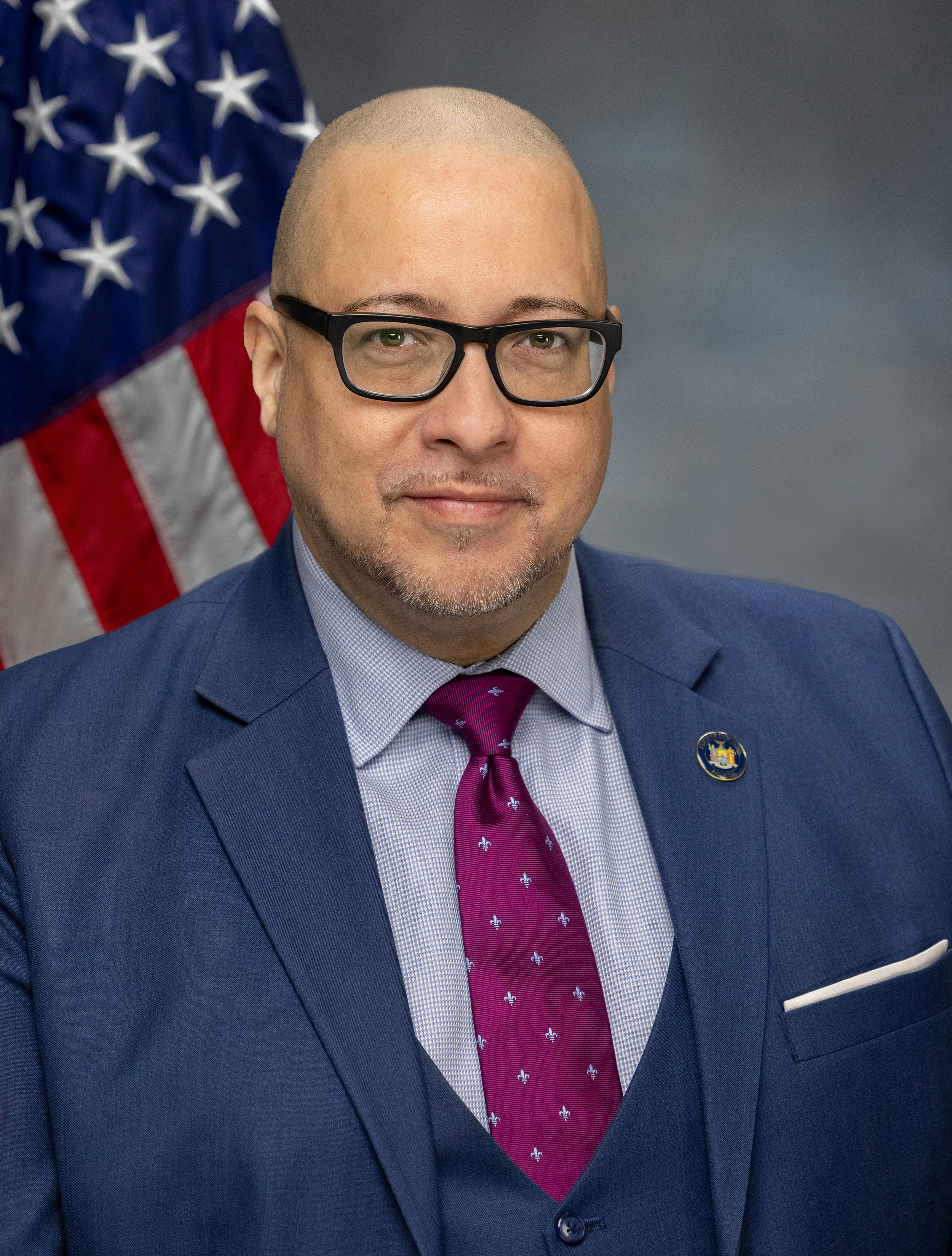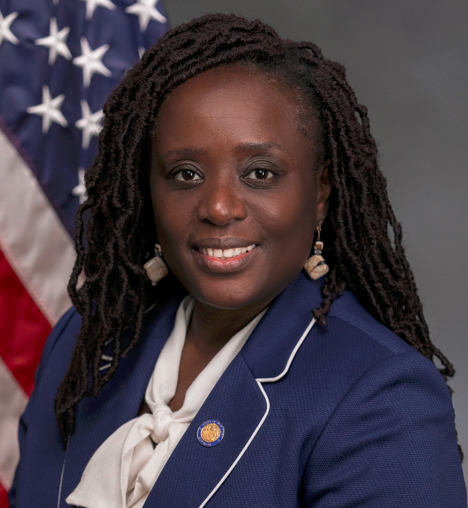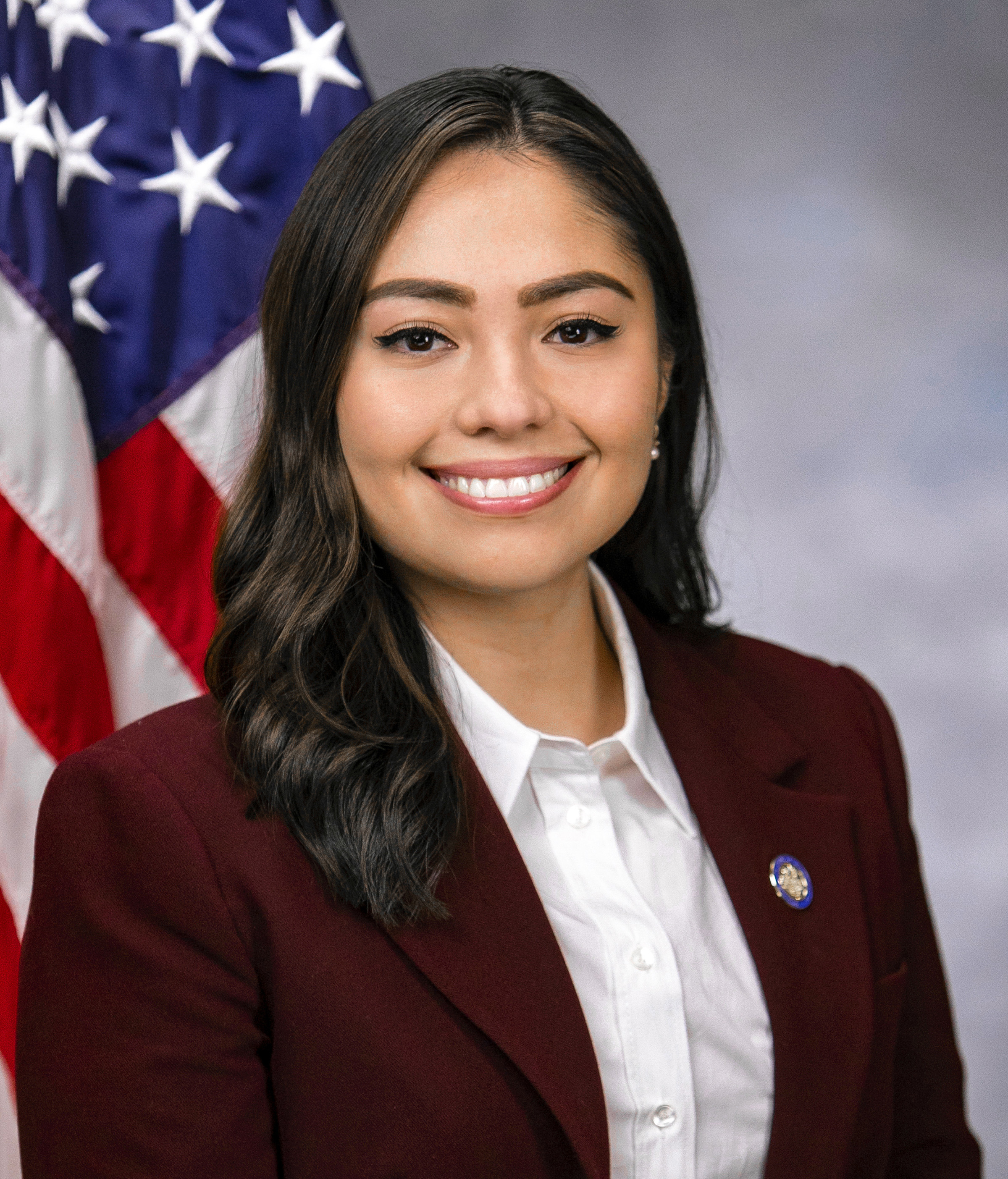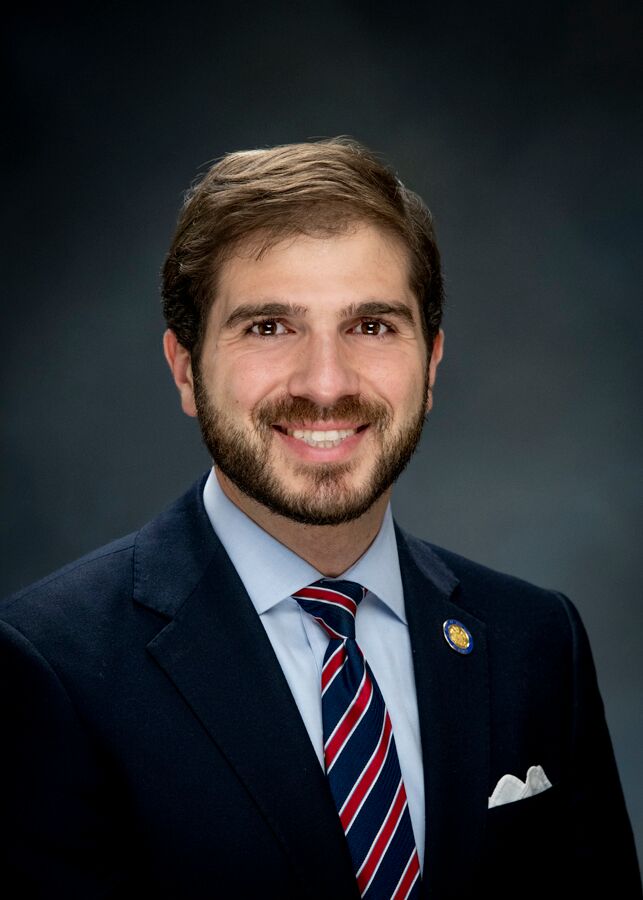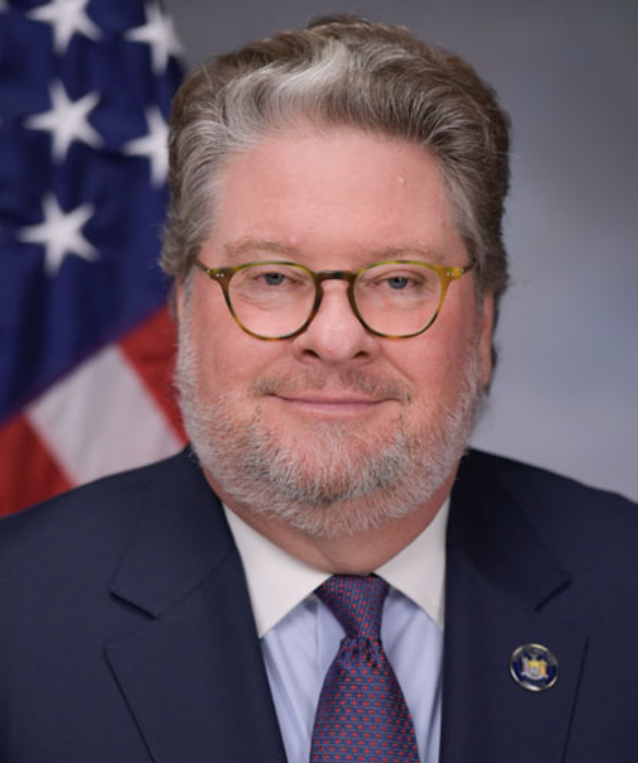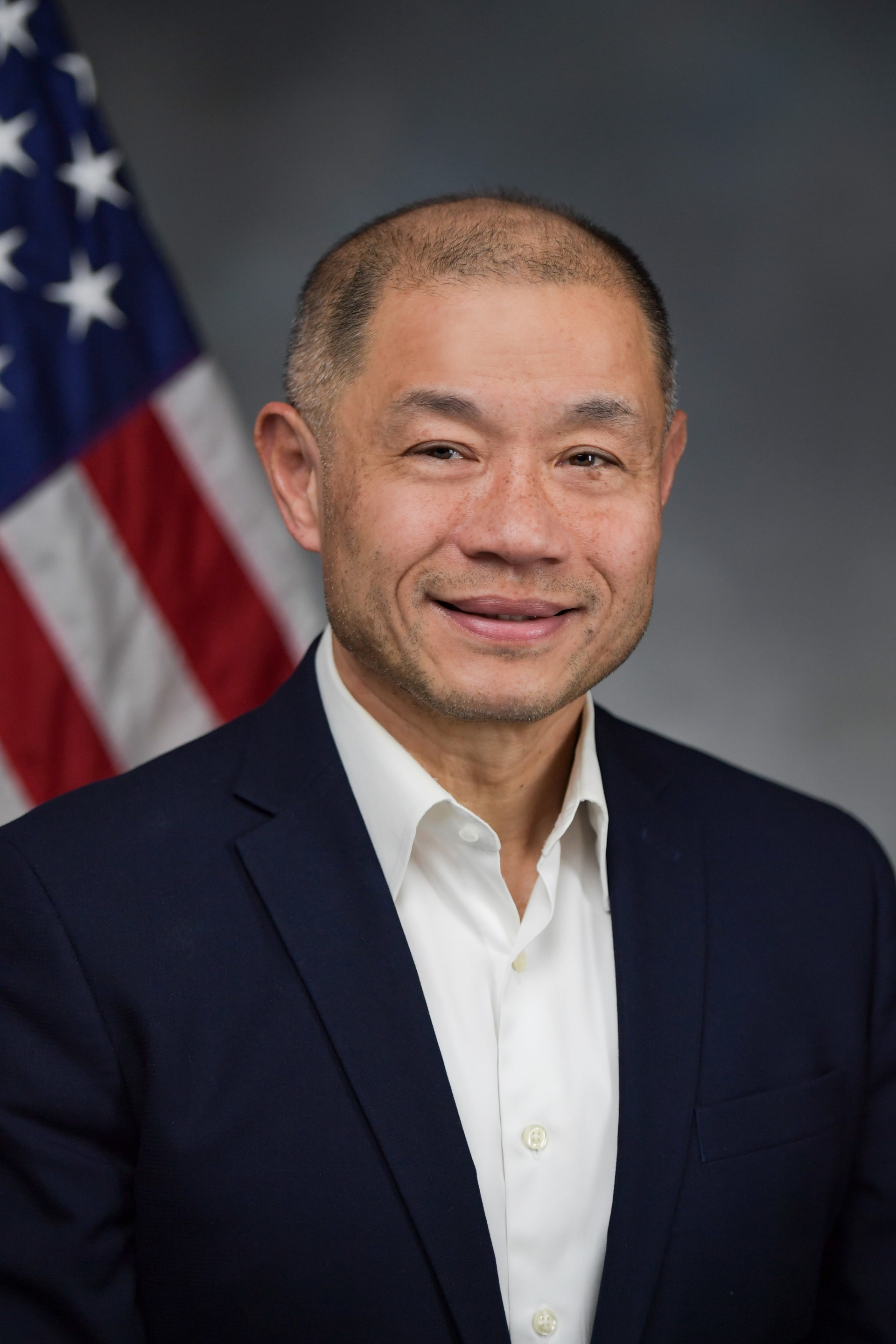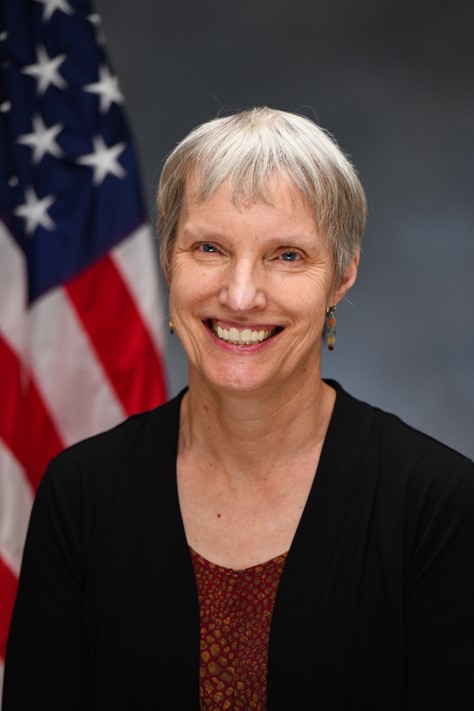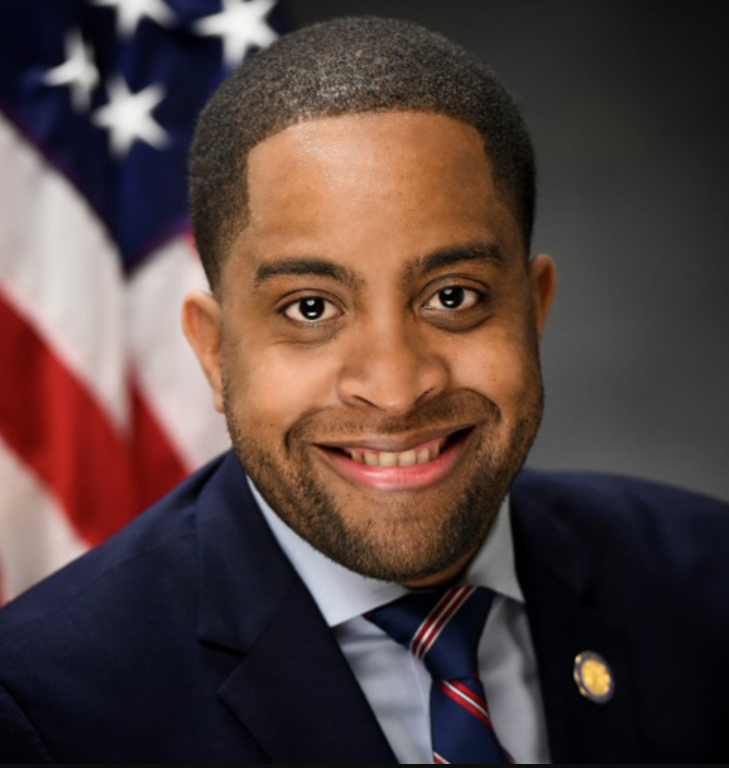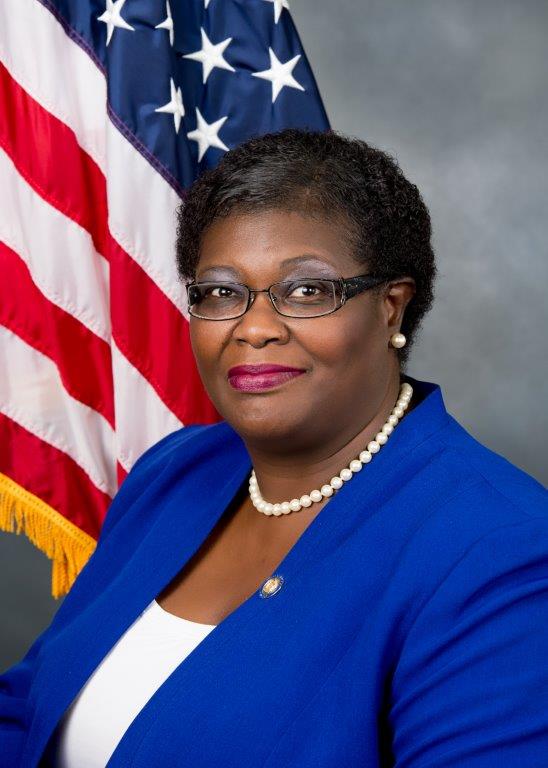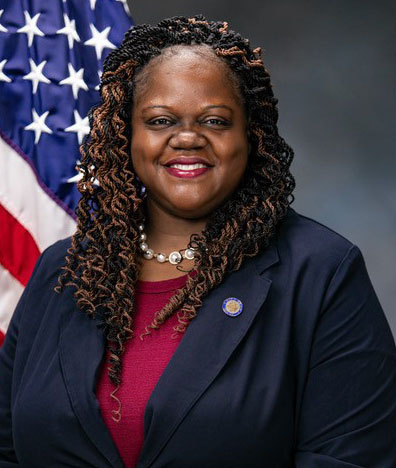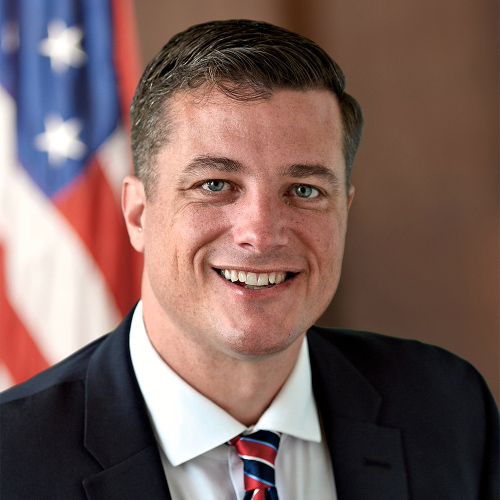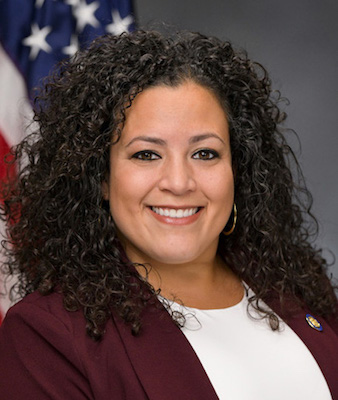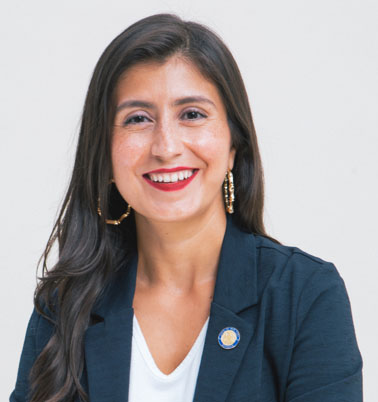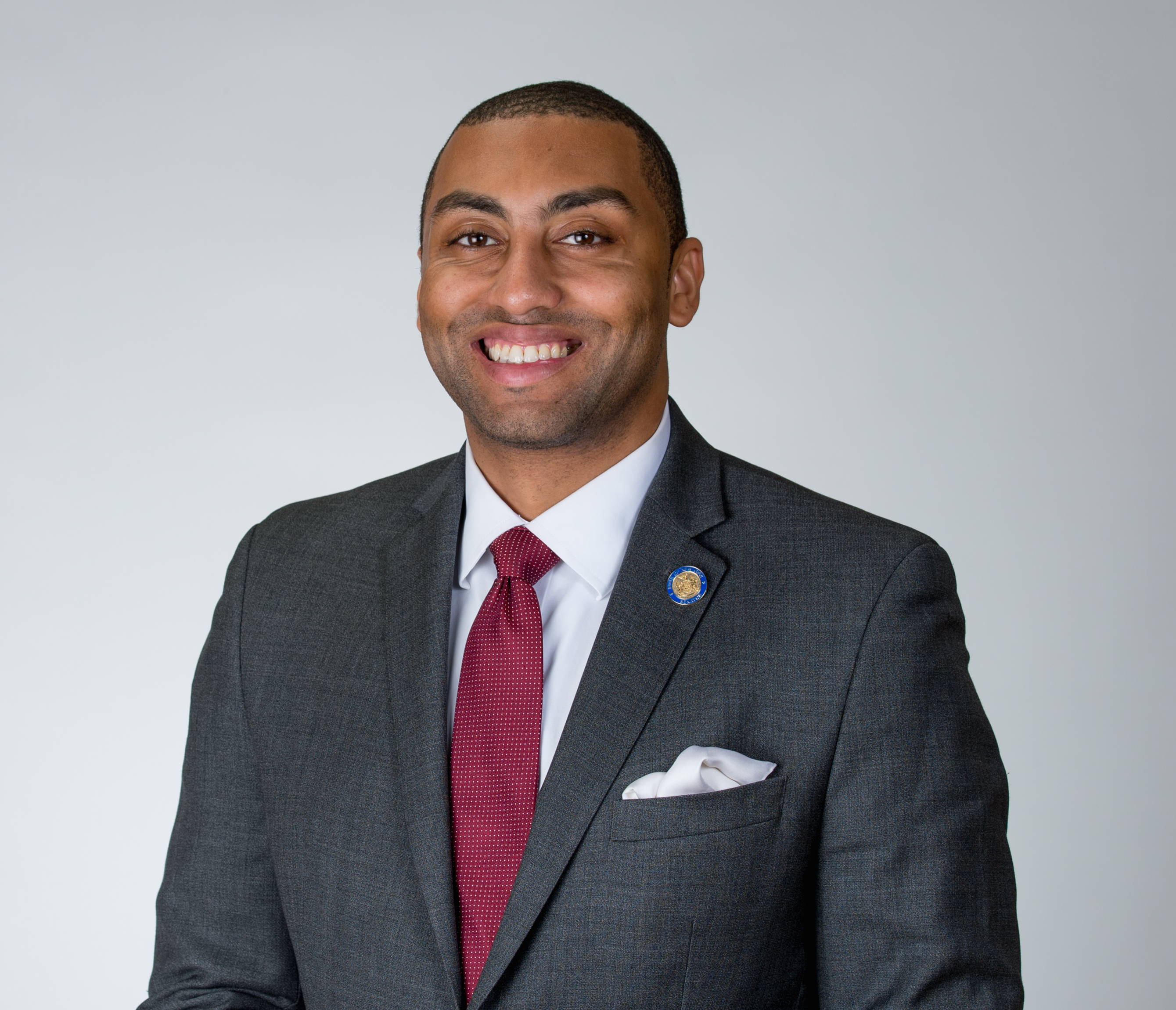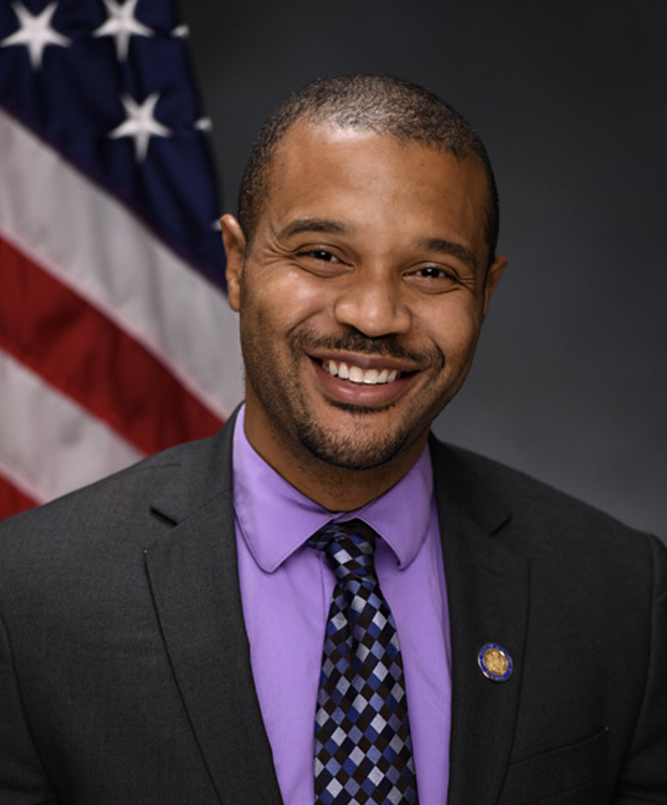| Date of Action |
Assembly Actions -
Lowercase Senate Actions - UPPERCASE |
|---|---|
| Jan 22, 2024 |
reported and committed to finance |
| Jan 16, 2024 |
print number 1366b |
| Jan 16, 2024 |
amend and recommit to health |
| Jan 03, 2024 |
referred to health |
| Jun 10, 2023 |
committed to rules |
| May 30, 2023 |
amended on third reading 1366a |
| Apr 20, 2023 |
advanced to third reading |
| Apr 19, 2023 |
2nd report cal. |
| Apr 18, 2023 |
1st report cal.620 |
| Jan 11, 2023 |
referred to health |
Find your Senator and share your views on important issues.
Senate Bill S1366A
2023-2024 Legislative Session
Modifies the distribution of funds from the general hospital indigent care pool; repealer
download bill text pdfSponsored By
(D, WF) 33rd Senate District
Archive: Last Bill Status - In Senate Committee Finance Committee
- Introduced
-
- In Committee Assembly
- In Committee Senate
-
- On Floor Calendar Assembly
- On Floor Calendar Senate
-
- Passed Assembly
- Passed Senate
- Delivered to Governor
- Signed By Governor
Actions
Votes
Bill Amendments
co-Sponsors
(D) 30th Senate District
(R, C) 60th Senate District
(D, WF) 59th Senate District
(D) 26th Senate District
(D, WF) 40th Senate District
(D, WF) 47th Senate District
(D, WF) 31st Senate District
(D, WF) 28th Senate District
(D) 16th Senate District
(D, WF) 48th Senate District
(D) 20th Senate District
(D) 19th Senate District
(D, WF) 18th Senate District
(D) 32nd Senate District
(D, WF) 52nd Senate District
2023-S1366 - Details
- See Assembly Version of this Bill:
- A6027
- Current Committee:
- Senate Finance
- Law Section:
- Public Health Law
- Laws Affected:
- Amd §2807-k, rpld §2807-k sub 14, Pub Health L
- Versions Introduced in 2021-2022 Legislative Session:
-
S7625, A8441
2023-S1366 - Sponsor Memo
BILL NUMBER: S1366
SPONSOR: RIVERA
TITLE OF BILL:
An act to amend the public health law, in relation to the general hospi-
tal indigent care pool; and to repeal certain provisions of such law
relating thereto
PURPOSE OR GENERAL IDEA OF BILL:
To require hospitals to use a uniform financial assistance policy and
application as a condition of participation in the indigent care pool
fund (ICP) and to expand the eligibility and protections available
through financial assistance.
SUMMARY OF SPECIFIC PROVISIONS:
This bill would:
Require the Department of Health (DOH) to develop a uniform financial
assistance policy and application to be used by all hospitals that
receive public funds for indigent care, commencing January 1, 2025. Allow certain patients who are without third-party payor coverage, or whose third-party coverage does not cover the service provided, and who can demonstrate their inability to pay the charges to be eligible for financial aid. Modify the maximum charges to patients receiving financial assistance. Patients with incomes at or below 200% of FPL would pay a nominal amount depending on circumstance, and patients above 200% and up to 400% of FPL would have charges reduced at a sliding scale, capped at 20% of the Medicare payment rate. Patients with incomes above 400% and up to 600% of the federal poverty level are eligible to have charges capped at Medicare payment levels for the same service. Allow payment installment plans to be offered with payments capped at 5% of the patient's gross monthly income with the first payment due no sooner than 180 days after the initially billed due date. Eliminate patient liability for any bills until a decision is made by the hospital related to availability of financial assistance. Cap interest on medical debt at 2% per year. Require patients to be refunded any overpayments made after financial assistance is determined. Modify hospital collection actions to allow a patient to apply for financial assistance if their financial circumstance has changed, even if a collection action has commenced. Establish that a hospital may use credit scoring software to help deter- mine income eligibility, but a credit score may not be the sole determi- nant of eligibility. Prohibit hospitals from reporting to financial reporting entities or commencing a civil action if the hospital was notified that an appeal of a health insurance determination is pending within the last 60 days or if the patient has a pending financial assistance application. Require that legal action by a hospital to collect medical debt must include an affidavit attesting that the patient is not eligible for financial assistance based on information and belief. Establish additional consumer protections relating to notifications, language access, appeals, and complaints of abuse. JUSTIFICATION: Currently, the Department of Health (DOH) distributes over $1 billion annually in Indigent Care Pool (ICP) funding to public and voluntary hospitals throughout the state. As a condition of receiving ICP funding, the law requires hospitals to offer free or discounted care to uninsured low- and moderate-income patients. Recent studies and news stories have documented that some hospitals are pursuing extraordinary collection actions and lawsuits against patients who often live in neighborhoods that are disproportionately low-income or have a high percentage of people of color, furthering systemic economic and racial inequality. The law currently allows hospitals to develop their own hospital finan- cial assistance application forms and policies, as long as they meet guidelines provided by DOH. However, the state's audits repeatedly have found that hospitals are not complying with the law, as have studies by consumer advocates. In fact, recent DOH audits show that hospitals have become less compliant with the law over time. The lack of standardi- zation in how hospitals implement financial assistance policies results in patients who should receive assistance going without that assistance and even going without care. This bill requires all hospitals to use one simplified form and policy developed by DOH and it strengthens the guardrails for when and how hospitals can pursue extraordinary medical debt collection activities, such as suing patients. In addition, the current eligibility requirements have not kept up with developments in public coverage eligibility. Medicaid enrollees in the MAGI Medicaid program are no longer subject to an asset test. The income eligibility rules for premium subsidies under the State's Chil- dren Health Insurance Program extend up to 400% of the Federal Poverty Level (FPL). Recognizing that even 400% is too low, the federal American Rescue Plan has extended Affordable Care Act subsidies up to 600% of the FPL. Accordingly, this bill eliminates asset tests and increases income eligibility for financial assistance from 300% to 600% of the FPL. The changes in this legislation will make it easier for DOH to ensure hospital compliance and simplify the experience for both patients and providers. New Yorkers deserve accountability for critical tax dollars going towards health care and compliance with laws assisting and protecting patients. Patients deserve the care they need without incur- ring financial disaster. PRIOR LEGISLATIVE HISTORY: 2022 - S7625 (Rivera) - Advanced to 3rd Reading 2021 - S7625 (Rivera) - Referred to Rules FISCAL IMPLICATIONS: None. EFFECTIVE DATE: The majority of the bill's patient protections take effect in 120 days. Provisions relating to the development of uniform financial assistance form and policy would take effect October 1, 2024, and would apply to funding distributed on or after January 1, 2025.
2023-S1366 - Bill Text download pdf
S T A T E O F N E W Y O R K
________________________________________________________________________
1366
2023-2024 Regular Sessions
I N S E N A T E
January 11, 2023
___________
Introduced by Sens. RIVERA, CLEARE, GOUNARDES, HARCKHAM, JACKSON, KRUEG-
ER, MAY, MYRIE, PERSAUD, SALAZAR, SEPULVEDA -- read twice and ordered
printed, and when printed to be committed to the Committee on Health
AN ACT to amend the public health law, in relation to the general hospi-
tal indigent care pool; and to repeal certain provisions of such law
relating thereto
THE PEOPLE OF THE STATE OF NEW YORK, REPRESENTED IN SENATE AND ASSEM-
BLY, DO ENACT AS FOLLOWS:
Section 1. Subdivision 9 of section 2807-k of the public health law,
as amended by section 17 of part B of chapter 60 of the laws of 2014, is
amended to read as follows:
9. In order for a general hospital to participate in the distribution
of funds from the pool, the general hospital must [implement minimum
collection policies and procedures approved] USE ONLY THE UNIFORM FINAN-
CIAL ASSISTANCE POLICY AND FORM PROVIDED by the commissioner.
§ 2. Subdivision 9-a of section 2807-k of the public health law, as
added by section 39-a of part A of chapter 57 of the laws of 2006, para-
graph (k) as added by section 43 of part B of chapter 58 of the laws of
2008, is amended to read as follows:
9-a. (a) (I) As a condition for participation in pool distributions
authorized pursuant to this section and section twenty-eight hundred
seven-w of this article for periods on and after January first, two
thousand nine, general hospitals shall, effective for periods on and
after January first, two thousand seven, establish financial [aid]
ASSISTANCE policies and procedures, in accordance with the provisions of
this subdivision, for reducing HOSPITAL charges otherwise applicable to
low-income individuals without THIRD-PARTY health [insurance] COVERAGE,
or who have [exhausted their] THIRD-PARTY health [insurance benefits]
COVERAGE THAT DOES NOT COVER OR LIMITS COVERAGE OF THE SERVICE, and who
can demonstrate an inability to pay full charges, and also, at the
hospital's discretion, for reducing or discounting the collection of
EXPLANATION--Matter in ITALICS (underscored) is new; matter in brackets
[ ] is old law to be omitted.
LBD02400-01-3
S. 1366 2 co-pays and deductible payments from those individuals who can demon- strate an inability to pay such amounts. IMMIGRATION STATUS SHALL NOT BE AN ELIGIBILITY CRITERION FOR THE PURPOSE OF DETERMINING FINANCIAL ASSISTANCE UNDER THIS SECTION. (II) A GENERAL HOSPITAL MAY USE THE NEW YORK STATE OF HEALTH MARKET- PLACE ELIGIBILITY DETERMINATION PAGE TO ESTABLISH THE PATIENT'S HOUSE- HOLD INCOME AND RESIDENCY IN LIEU OF THE FINANCIAL APPLICATION FORM, PROVIDED IT HAS SECURED THE CONSENT OF THE PATIENT. A GENERAL HOSPITAL SHALL NOT REQUIRE A PATIENT TO APPLY FOR COVERAGE THROUGH THE NEW YORK STATE OF HEALTH MARKETPLACE IN ORDER TO RECEIVE CARE OR FINANCIAL ASSISTANCE. (III) UPON SUBMISSION OF A COMPLETED APPLICATION FORM, THE PATIENT IS NOT LIABLE FOR ANY BILLS UNTIL THE GENERAL HOSPITAL HAS RENDERED A DECI- SION ON THE APPLICATION IN ACCORDANCE WITH THIS SUBDIVISION. (b) [Such] THE reductions from charges for [uninsured] patients DESCRIBED IN PARAGRAPH (A) OF THIS SUBDIVISION with incomes below [at least three] SIX hundred percent of the federal poverty level shall result in a charge to such individuals that does not exceed [the greater of] the amount that would have been paid for the same services [by the "highest volume payor" for such general hospital as defined in subpara- graph (v) of this paragraph, or for services provided pursuant to title XVIII of the federal social security act (medicare), or for services] provided pursuant to title [XIX] XVIII of the federal social security act [(medicaid)] (MEDICARE), and provided further that such [amounts] AMOUNT shall be adjusted according to income level as follows: (i) For patients with incomes at or below [at least one] TWO hundred percent of the federal poverty level, the hospital shall collect no more than a nominal payment amount, consistent with guidelines established by the commissioner[;]. (ii) For patients with incomes [between at least one] ABOVE TWO hundred [one] percent and [one] UP TO FOUR hundred [fifty] percent of the federal poverty level, the hospital shall collect no more than the amount identified after application of a proportional sliding fee sched- ule under which patients with lower incomes shall pay the lowest amount. [Such] THE schedule shall provide that the amount the hospital may collect for [such patients] THE PATIENT increases from the nominal amount described in subparagraph (i) of this paragraph in equal incre- ments as the income of the patient increases, up to a maximum of twenty percent of the [greater of the] amount that would have been paid for the same services [by the "highest volume payor" for such general hospital, as defined in subparagraph (v) of this paragraph, or for services provided pursuant to title XVIII of the federal social security act (medicare) or for services] provided pursuant to title [XIX] XVIII of the federal social security act [(medicaid);] (MEDICARE). (iii) [For patients with incomes between at least one hundred fifty- one percent and two hundred fifty percent of the federal poverty level, the hospital shall collect no more than the amount identified after application of a proportional sliding fee schedule under which patients with lower income shall pay the lowest amounts. Such schedule shall provide that the amount the hospital may collect for such patients increases from the twenty percent figure described in subparagraph (ii) of this paragraph in equal increments as the income of the patient increases, up to a maximum of the greater of the amount that would have been paid for the same services by the "highest volume payor" for such general hospital, as defined in subparagraph (v) of this paragraph, or for services provided pursuant to title XVIII of the federal social S. 1366 3 security act (medicare) or for services provided pursuant to title XIX of the federal social security act (medicaid); and (iv)] For patients with incomes [between at least two hundred fifty- one percent and three hundred] ABOVE FOUR HUNDRED PERCENT AND UP TO SIX HUNDRED percent of the federal poverty level, the hospital shall collect no more than the [greater of the] amount that would have been paid for the same services [by the "highest volume payor" for such general hospi- tal as defined in subparagraph (v) of this paragraph, or for services provided pursuant to title XVIII of the federal social security act (medicare), or for services] provided pursuant to title [XIX] XVIII of the federal social security act [(medicaid)] (MEDICARE). [(v) For the purposes of this paragraph, "highest volume payor" shall mean the insurer, corporation or organization licensed, organized or certified pursuant to article thirty-two, forty-two or forty-three of the insurance law or article forty-four of this chapter, or other third- party payor, which has a contract or agreement to pay claims for services provided by the general hospital and incurred the highest volume of claims in the previous calendar year. (vi) A hospital may implement policies and procedures to permit, but not require, consideration on a case-by-case basis of exceptions to the requirements described in subparagraphs (i) and (ii) of this paragraph based upon the existence of significant assets owned by the patient that should be taken into account in determining the appropriate payment amount for that patient's care, provided, however, that such proposed policies and procedures shall be subject to the prior review and approval of the commissioner and, if approved, shall be included in the hospital's financial assistance policy established pursuant to this section, and provided further that, if such approval is granted, the maximum amount that may be collected shall not exceed the greater of the amount that would have been paid for the same services by the "highest volume payor" for such general hospital as defined in subparagraph (v) of this paragraph, or for services provided pursuant to title XVIII of the federal social security act (medicare), or for services provided pursuant to title XIX of the federal social security act (medicaid). In the event that a general hospital reviews a patient's assets in deter- mining payment adjustments such policies and procedures shall not consider as assets a patient's primary residence, assets held in a tax- deferred or comparable retirement savings account, college savings accounts, or cars used regularly by a patient or immediate family members. (vii)] (C) Nothing in this [paragraph] SUBDIVISION shall be construed to limit a hospital's ability to establish patient eligibility for payment discounts at income levels higher than those specified herein and/or to provide greater payment discounts for eligible patients than those required by this [paragraph] SUBDIVISION. [(c)] (D) Such policies and procedures shall be clear, understandable, in writing and publicly available in summary form and each general hospital participating in the pool shall ensure that every patient is made aware of the existence of [such] THE policies and procedures and is provided, in a timely manner, with a summary AND A COPY of [such poli- cies and procedures] THE POLICY AND FORM upon request. Any summary provided to patients shall, at a minimum, include specific information as to income levels used to determine eligibility for assistance, a description of the primary service area of the hospital and the means of applying for assistance. [For general hospitals with twenty-four hour emergency departments, such policies and procedures] A GENERAL HOSPITAL S. 1366 4 shall [require the notification of patients] NOTIFY PATIENTS BY PROVID- ING WRITTEN MATERIALS TO PATIENTS OR THEIR AUTHORIZED REPRESENTATIVES during the intake and registration process, through the conspicuous posting of language-appropriate information in the general hospital, and BY INCLUDING information on bills and statements sent to patients, that financial [aid] ASSISTANCE may be available to qualified patients and how to obtain further information. [For specialty hospitals without twenty-four hour emergency departments, such notification shall take place through written materials provided to patients during the intake and registration process prior to the provision of any health care services or procedures, and through information on bills and statements sent to patients, that financial aid may be available to qualified patients and how to obtain further information. Application materials shall include a notice to patients that upon submission of a completed application, including any information or documentation needed to deter- mine the patient's eligibility pursuant to the hospital's financial assistance policy, the patient may disregard any bills until the hospi- tal has rendered a decision on the application in accordance with this paragraph] GENERAL HOSPITALS SHALL POST THE FINANCIAL ASSISTANCE APPLI- CATION POLICY, PROCEDURES AND FORM, AND A SUMMARY OF THE POLICY AND PROCEDURES, IN A CONSPICUOUS LOCATION AND DOWNLOADABLE FORM ON THE GENERAL HOSPITAL'S WEBSITE. [(d) Such] (E) THE HOSPITAL'S APPLICATION MATERIALS SHALL INCLUDE A NOTICE TO PATIENTS THAT UPON SUBMISSION OF A COMPLETED APPLICATION FORM, THE PATIENT SHALL NOT BE LIABLE FOR ANY BILLS UNTIL THE GENERAL HOSPITAL HAS RENDERED A DECISION ON THE APPLICATION IN ACCORDANCE WITH THIS SUBDIVISION. THE APPLICATION MATERIALS SHALL INCLUDE SPECIFIC INFORMA- TION AS THE INCOME LEVELS USED TO DETERMINE ELIGIBILITY FOR FINANCIAL ASSISTANCE, A DESCRIPTION OF THE PRIMARY SERVICE AREA OF THE HOSPITAL AND THE MEANS TO APPLY FOR ASSISTANCE. NOTHING IN THIS SUBDIVISION SHALL BE CONSTRUED AS PRECLUDING THE USE OF PRESUMPTIVE ELIGIBILITY DETERMI- NATIONS BY HOSPITALS ON BEHALF OF PATIENTS. THE policies and procedures shall include clear, objective criteria for determining a patient's ability to pay and for providing such adjustments to payment require- ments as are necessary. In addition to adjustment mechanisms such as sliding fee schedules and discounts to fixed standards, such policies and procedures shall also provide for the use of installment plans for the payment of outstanding balances by patients pursuant to the provisions of the hospital's financial assistance policy. The monthly payment under such a plan shall not exceed [ten] FIVE percent of the gross monthly income of the patient[, provided, however, that if patient assets are considered under such a policy, then patient assets which are not excluded assets pursuant to subparagraph (vi) of paragraph (b) of this subdivision may be considered in addition to the limit on monthly payments]. INSTALLMENT PLAN PAYMENTS MAY NOT BE REQUIRED TO BEGIN BEFORE ONE HUNDRED EIGHTY DAYS AFTER THE DATE OF THE SERVICE OR DISCHARGE, WHICHEVER IS LATER. THE POLICY SHALL ALLOW THE PATIENT AND THE HOSPITAL TO MUTUALLY AGREE TO MODIFY THE TERMS OF AN INSTALLMENT PLAN. The rate of interest charged to the patient on the unpaid balance, if any, shall not exceed [the rate for a ninety-day security issued by the United States Department of Treasury, plus .5 percent] TWO PERCENTUM PER ANNUM and no plan shall include an accelerator or similar clause under which a higher rate of interest is triggered upon a missed payment. [If such] THE policies and procedures SHALL NOT include a requirement of a deposit prior to [non-emergent,] medically-necessary care[, such deposit must be included as part of any financial aid consideration]. THE HOSPITAL S. 1366 5 SHALL REFUND ANY PAYMENTS MADE BY THE PATIENT BEFORE THE DETERMINATION OF ELIGIBILITY FOR FINANCIAL ASSISTANCE THAT EXCEEDS THE PATIENT'S LIABILITY AFTER DISCOUNTS ARE APPLIED. Such policies and procedures shall be applied consistently to all eligible patients. [(e) Such policies and procedures shall permit patients to] (F) IN ANY LEGAL ACTION BY OR ON BEHALF OF A HOSPITAL TO COLLECT A MEDICAL DEBT, THE COMPLAINT SHALL BE ACCOMPANIED BY AN AFFIDAVIT BY THE HOSPITAL'S CHIEF FINANCIAL OFFICER STATING THAT ON INFORMATION AND BELIEF THE PATIENT DOES NOT MEET THE INCOME OR RESIDENCY CRITERIA FOR FINANCIAL ASSISTANCE. PATIENTS MAY apply for FINANCIAL assistance [within at least ninety days of the date of discharge or date of service and provide at least twenty days for patients to submit a completed application] AT ANY TIME DURING THE COLLECTION PROCESS, INCLUDING AFTER THE COMMENCEMENT OF A MEDICAL DEBT COURT ACTION OR UPON THE PLAINTIFF OBTAINING A DEFAULT JUDGMENT. A HOSPITAL MAY USE CREDIT SCORING SOFTWARE FOR THE PURPOSES OF ESTABLISHING INCOME ELIGIBILITY AND APPROVING FINANCIAL ASSISTANCE, BUT ONLY IF THE HOSPITAL MAKES CLEAR TO THE PATIENT THAT PROVIDING A SOCIAL SECURITY NUMBER IS NOT MANDATORY AND THE SCORING DOES NOT NEGATIVELY IMPACT THE PATIENT'S CREDIT SCORE. HOWEVER, CREDIT SCORING SOFTWARE SHALL NOT BE SOLELY RELIED UPON BY THE HOSPITAL IN DENYING A PATIENT'S APPLICATION FOR FINANCIAL ASSISTANCE. [Such] THE policies and proce- dures [may require that] SHALL ALLOW patients seeking [payment adjust- ments] FINANCIAL ASSISTANCE TO provide [appropriate] THE FOLLOWING financial information and documentation in support of their applica- tion[, provided, however, that such application process shall not be unduly burdensome or complex]: PAY CHECKS OR PAY STUBS; UNEMPLOYMENT DOCUMENTATION; SOCIAL SECURITY INCOME; RENT RECEIPTS; A LETTER FROM THE PATIENT'S EMPLOYER ATTESTING TO THE PATIENT'S GROSS INCOME; OR, IF NONE OF THE AFOREMENTIONED INFORMATION AND DOCUMENTATION ARE AVAILABLE, A WRITTEN SELF-ATTESTATION OF THE PATIENT'S INCOME MAY BE USED. General hospitals shall, upon request, assist patients in understanding the hospital's APPLICATION AND FORM, policies and procedures and in applying for payment adjustments. Application forms shall be printed AND POSTED TO ITS WEBSITE in the "primary languages" of patients served by the general hospital. For the purposes of this paragraph, "primary languages" shall include any language that is either (i) used to commu- nicate, during at least five percent of patient visits in a year, by patients who cannot speak, read, write or understand the English language at the level of proficiency necessary for effective communi- cation with health care providers, or (ii) spoken by non-English speak- ing individuals comprising more than one percent of the primary hospital service area population, as calculated using demographic information available from the United States Bureau of the Census, supplemented by data from school systems. Decisions regarding such applications shall be made within thirty days of receipt of a completed application. [Such] THE policies and procedures shall require that the hospital issue any [denial/approval] DENIAL OR APPROVAL of [such] THE application in writ- ing with information on how to appeal the denial and shall require the hospital to establish an appeals process under which it will evaluate the denial of an application. [Nothing in this subdivision shall be interpreted as prohibiting a hospital from making the availability of financial assistance contingent upon the patient first applying for coverage under title XIX of the social security act (medicaid) or anoth- er insurance program if, in the judgment of the hospital, the patient may be eligible for medicaid or another insurance program, and upon the patient's cooperation in following the hospital's financial assistance S. 1366 6 application requirements, including the provision of information needed to make a determination on the patient's application in accordance with the hospital's financial assistance policy] THE HOSPITAL SHALL INFORM PATIENTS ON HOW TO FILE A COMPLAINT AGAINST THE HOSPITAL OR A DEBT COLLECTOR THAT IS CONTRACTED ON BEHALF OF THE HOSPITAL REGARDING THE PATIENT'S BILL. [(f) Such] (G) THE policies and procedures shall provide that patients with incomes below [three] SIX hundred percent of the federal poverty level are deemed [presumptively] eligible for payment adjustments and shall conform to the requirements set forth in paragraph (b) of this subdivision, provided, however, that nothing in this subdivision shall be interpreted as precluding hospitals from extending such payment adjustments to other patients, either generally or on a case-by-case basis. [Such] THE policies and procedures shall provide financial [aid] ASSISTANCE for emergency hospital services, including emergency trans- fers pursuant to the federal emergency medical treatment and active labor act (42 USC 1395dd), to patients who reside in New York state and for medically necessary hospital services for patients who reside in the hospital's primary service area as determined according to criteria established by the commissioner. In developing [such] THE criteria, the commissioner shall consult with representatives of the hospital indus- try, health care consumer advocates and local public health officials. [Such] THE criteria shall be made available to the public no less than thirty days prior to the date of implementation and shall, at a minimum: (i) prohibit a hospital from developing or altering its primary service area in a manner designed to avoid medically underserved commu- nities or communities with high percentages of uninsured residents; (ii) ensure that every geographic area of the state is included in at least one general hospital's primary service area so that eligible patients may access care and financial assistance; and (iii) require the hospital to notify the commissioner upon making any change to its primary service area, and to include a description of its primary service area in the hospital's annual implementation report filed pursuant to subdivision three of section twenty-eight hundred three-l of this article. [(g)] (H) Nothing in this subdivision shall be interpreted as preclud- ing hospitals from extending payment adjustments for medically necessary non-emergency hospital services to patients outside of the hospital's primary service area. For patients determined to be eligible for finan- cial [aid] ASSISTANCE under the terms of a hospital's financial [aid] ASSISTANCE policy, [such] THE policies and procedures shall prohibit any limitations on financial [aid] ASSISTANCE for services based on the medical condition of the applicant, other than typical limitations or exclusions based on medical necessity or the clinical or therapeutic benefit of a procedure or treatment. [(h) Such policies and procedures shall not permit the forced] (I) A HOSPITAL OR ITS AGENT SHALL NOT ISSUE, AUTHORIZE OR PERMIT AN INCOME EXECUTION OF A PATIENT'S WAGES, SECURE A LIEN OR FORCE A sale or fore- closure of a patient's primary residence in order to collect an outstanding medical bill and shall [require the hospital to refrain from sending] NOT SEND an account to collection if the patient has submitted a completed application for financial [aid, including any required supporting documentation] ASSISTANCE, while the hospital determines the patient's eligibility for [such aid] FINANCIAL ASSISTANCE. [Such] THE policies and procedures shall provide for written notification, which shall include notification on a patient bill, to a patient not less than S. 1366 7 thirty days prior to the referral of debts for collection and shall require that the collection agency obtain the hospital's written consent prior to commencing a legal action. [Such] THE policies and procedures shall require all general hospital staff who interact with patients or have responsibility for billing and collections to be trained in [such] THE policies and procedures, and require the implementation of a mech- anism for the general hospital to measure its compliance with [such] THE policies and procedures. [Such] THE policies and procedures shall require that any collection agency, LAWYER OR FIRM under contract with a general hospital for the collection of debts follow the hospital's financial assistance policy, including providing information to patients on how to apply for financial assistance where appropriate. [Such] THE policies and procedures shall prohibit collections from a patient who is determined to be eligible for medical assistance [pursuant to title XIX of the federal social security act] UNDER TITLE ELEVEN OF ARTICLE FIVE OF THE SOCIAL SERVICES LAW at the time services were rendered and for which services medicaid payment is available. [(i)] (J) Reports required to be submitted to the department by each general hospital as a condition for participation in the pools[, and which contain, in accordance with applicable regulations,] SHALL CONTAIN: (I) a certification from an independent certified public accountant or independent licensed public accountant or an attestation from a senior official of the hospital that the hospital is in compli- ance with conditions of participation in the pools[, shall also contain, for reporting periods on and after January first, two thousand seven:]; [(i)] (II) a report on hospital costs incurred and uncollected amounts in providing services to [eligible] patients [without insurance] FOUND ELIGIBLE FOR FINANCIAL ASSISTANCE, including the amount of care provided for a nominal payment amount, during the period covered by the report; [(ii)] (III) hospital costs incurred and uncollected amounts for deductibles and coinsurance for eligible patients with insurance or other third-party payor coverage; [(iii)] (IV) the number of patients, organized according to United States postal service zip code, RACE, ETHNICITY AND GENDER, who applied for financial assistance [pursuant to] UNDER the hospital's financial assistance policy, and the number, organized according to United States postal service zip code, RACE, ETHNICITY AND GENDER, whose applications were approved and whose applications were denied; [(iv)] (V) the reimbursement received for indigent care from the pool established [pursuant to] UNDER this section; [(v)] (VI) the amount of funds that have been expended on [charity care] FINANCIAL ASSISTANCE from charitable bequests made or trusts established for the purpose of providing financial assistance to patients who are eligible in accordance with the terms of [such] THE bequests or trusts; [(vi)] (VII) for hospitals located in social services districts in which the district allows hospitals to assist patients with such appli- cations, the number of applications for eligibility FOR MEDICAID under title [XIX of the social security act (medicaid)] ELEVEN OF ARTICLE FIVE OF THE SOCIAL SERVICES LAW that the hospital assisted patients in completing and the number denied and approved; [(vii)] (VIII) the hospital's financial losses resulting from services provided under medicaid; and [(viii)] (IX) the number of REFERRALS TO COLLECTION AGENTS OR CONTRACTED EXTERNAL COLLECTION VENDORS, COURT CASES AND liens placed on S. 1366 8 [the primary] ANY residences of patients through the collection process used by a hospital. [(j)] (K) Within ninety days of the effective date of THE CHAPTER OF THE LAWS OF TWO THOUSAND TWENTY-THREE WHICH AMENDED this subdivision each hospital shall submit to the commissioner a written report on its policies and procedures for financial assistance to patients which are used by the hospital [on the] AS OF SUCH effective date [of this subdi- vision]. Such report shall include copies of its policies and proce- dures, including material which is distributed to patients, and a description of the hospital's financial aid policies and procedures. Such description shall include the income levels of patients on which eligibility is based, the financial aid eligible patients receive and the means of calculating such aid, and the service area, if any, used by the hospital to determine eligibility. [(k)] (L) THE COMMISSIONER SHALL INCLUDE THE DATA COLLECTED UNDER PARAGRAPH (J) OF THIS SUBDIVISION IN REGULAR AUDITS OF THE ANNUAL GENER- AL HOSPITAL INSTITUTIONAL COST REPORT. (M) In the event [it is determined by the commissioner that] the state [will be] IS unable to secure all necessary federal approvals to include, as part of the state's approved state plan under title nineteen of the federal social security act, a requirement[, as set forth in paragraph one of this subdivision,] that compliance with this subdivi- sion is a condition of participation in pool distributions authorized pursuant to this section and section twenty-eight hundred seven-w of this article, then such condition of participation shall be deemed null and void [and, notwithstanding]. NOTWITHSTANDING section twelve of this chapter, failure to comply with [the provisions of] this subdivision by a GENERAL hospital [on and after the date of such determination] shall make [such] THE hospital liable for a civil penalty not to exceed ten thousand dollars for each [such] violation. The imposition of [such] THE civil penalties shall be subject to [the provisions of] section twelve-a of this chapter. (N) A HOSPITAL OR ITS COLLECTION AGENTS SHALL NOT REPORT ADVERSE INFORMATION ABOUT A PATIENT TO A CONSUMER OR FINANCIAL REPORTING ENTITY, OR COMMENCE CIVIL ACTION AGAINST A PATIENT OR DELEGATE A COLLECTION ACTIVITY TO A DEBT COLLECTOR FOR NONPAYMENT FOR ONE HUNDRED EIGHTY DAYS AFTER THE FIRST POST-SERVICE BILL IS ISSUED; AND A HOSPITAL SHALL NOT REPORT ADVERSE INFORMATION TO A CONSUMER REPORTING AGENCY, OR COMMENCE A CIVIL ACTION AGAINST A PATIENT OR DELEGATE A COLLECTION ACTIVITY TO A DEBT COLLECTOR, IF: THE HOSPITAL WAS NOTIFIED THAT AN APPEAL OR A REVIEW OF A HEALTH INSURANCE DECISION IS PENDING WITHIN THE IMMEDIATELY PRECED- ING SIXTY DAYS; OR THE PATIENT HAS A PENDING APPLICATION FOR OR QUALI- FIED FOR FINANCIAL ASSISTANCE. A HOSPITAL SHALL REPORT THE FULFILLMENT OF A PATIENT'S PAYMENT OBLIGATION WITHIN THIRTY DAYS AFTER THE OBLI- GATION IS FULFILLED TO A CONSUMER OR FINANCIAL REPORTING ENTITY TO WHICH THE HOSPITAL HAD REPORTED ADVERSE INFORMATION ABOUT THE PATIENT. § 3. Subdivision 9-a of section 2807-k of the public health law as amended by section two of this act, is amended to read as follows: 9-a. (a) (i) As a condition for participation in pool distributions authorized pursuant to this section and section twenty-eight hundred seven-w of this article for periods on and after January first, two thousand nine, general hospitals shall, effective for periods on and after January first, two thousand [seven, establish] TWENTY-FIVE, ADOPT AND IMPLEMENT THE UNIFORM financial assistance [policies and procedures, in accordance with the provisions of this subdivision,] FORM AND POLICY, TO BE DEVELOPED AND ISSUED BY THE COMMISSIONER. GENERAL HOSPITALS SHALL S. 1366 9 IMPLEMENT THE UNIFORM POLICY AND FORM for reducing hospital charges AND CHARGES FOR AFFILIATED PROVIDERS otherwise applicable to low-income individuals without third-party health coverage, or who have third-party health coverage that does not cover or limits coverage of the service, and who can demonstrate an inability to pay full charges, and also, at the hospital's discretion, for reducing or discounting the collection of co-pays and deductible payments from those individuals who can demon- strate an inability to pay such amounts. Immigration status shall not be an eligibility criterion for the purpose of determining financial assistance under this section. AS USED IN THIS SECTION, "AFFILIATED PROVIDER" MEANS A PROVIDER THAT IS: (A) EMPLOYED BY THE HOSPITAL; (B) UNDER A PROFESSIONAL SERVICES AGREEMENT WITH THE HOSPITAL; OR (C) A CLINICAL FACULTY MEMBER OF A MEDICAL SCHOOL OR OTHER SCHOOL THAT TRAINS INDIVIDUALS TO BE PROVIDERS AND THAT IS AFFILIATED WITH THE HOSPITAL OR HEALTH SYSTEM. (ii) A general hospital may use the New York state of health market- place eligibility determination page to establish the patient's house- hold income and residency in lieu of the financial application form, provided it has secured the consent of the patient. A general hospital shall not require a patient to apply for coverage through the New York state of health marketplace in order to receive care or financial assistance. (iii) Upon submission of a completed application form, the patient is not liable for any bills until the general hospital has rendered a deci- sion on the application in accordance with this subdivision. (b) The reductions from charges for patients described in paragraph (a) of this subdivision with incomes below six hundred percent of the federal poverty level shall result in a charge to such individuals that does not exceed the amount that would have been paid for the same services provided pursuant to title XVIII of the federal social security act (medicare), and provided further that such amount shall be adjusted according to income level as follows: (i) For patients with incomes at or below two hundred percent of the federal poverty level, the hospital shall collect no more than a nominal payment amount, consistent with guidelines established by the commis- sioner. (ii) For patients with incomes above two hundred percent and up to four hundred percent of the federal poverty level, the hospital shall collect no more than the amount identified after application of a proportional sliding fee schedule under which patients with lower incomes shall pay the lowest amount. The schedule shall provide that the amount the hospital may collect for the patient increases from the nomi- nal amount described in subparagraph (i) of this paragraph in equal increments as the income of the patient increases, up to a maximum of twenty percent of the amount that would have been paid for the same services provided pursuant to title XVIII of the federal social security act (medicare). (iii) For patients with incomes above four hundred percent and up to six hundred percent of the federal poverty level, the hospital shall collect no more than the amount that would have been paid for the same services provided pursuant to title XVIII of the federal social security act (medicare). (c) Nothing in this subdivision shall be construed to limit a hospi- tal's ability to establish patient eligibility for payment discounts at income levels higher than those specified herein and/or to provide S. 1366 10 greater payment discounts for eligible patients than those required by this subdivision. (d) [Such policies and procedures shall be clear, understandable, in writing and publicly available in summary form and each] EACH general hospital participating in the pool shall ensure that every patient is made aware of the existence of [the policies and procedures] THE UNIFORM FINANCIAL ASSISTANCE FORM AND POLICY and is provided, in a timely manner, with [a summary and] a copy of the policy and form upon request. [Any summary provided to patients shall, at a minimum, include specific information as to income levels used to determine eligibility for assistance, a description of the primary service area of the hospital and the means of applying for assistance.] A general hospital shall notify patients by providing written materials to patients or their authorized representatives during the intake and registration process, through the conspicuous posting of language-appropriate information in the general hospital, and by including information on bills and state- ments sent to patients, that financial assistance may be available to qualified patients and how to obtain further information. General hospi- tals shall post the UNIFORM financial assistance application policy[, procedures] and form, and a summary of the policy [and procedures], in a conspicuous location and downloadable form on the general hospital's website. THE COMMISSIONER SHALL POST THE UNIFORM FINANCIAL ASSISTANCE FORM AND POLICY IN DOWNLOADABLE FORM ON THE DEPARTMENT'S HOSPITAL PROFILE PAGE OR ANY SUCCESSOR WEBSITE. (e) The [hospital's] COMMISSIONER SHALL PROVIDE APPLICATION MATERIALS TO GENERAL HOSPITALS, INCLUDING THE UNIFORM FINANCIAL ASSISTANCE APPLI- CATION FORM AND POLICY. THESE application materials shall include a notice to patients that upon submission of a completed application form, the patient shall not be liable for any bills until the general hospital has rendered a decision on the application in accordance with this subdivision. The application materials shall include specific informa- tion as the income levels used to determine eligibility for financial assistance, a description of the primary service area of the hospital and the means to apply for assistance. Nothing in this subdivision shall be construed as precluding the use of presumptive eligibility determi- nations by hospitals on behalf of patients. The [policies and proce- dures] UNIFORM APPLICATION FORM AND POLICY shall include clear, objec- tive criteria for determining a patient's ability to pay and for providing such adjustments to payment requirements as are necessary. In addition to adjustment mechanisms such as sliding fee schedules and discounts to fixed standards, [such policies and procedures] THE UNIFORM POLICY shall also provide for the use of installment plans for the payment of outstanding balances by patients [pursuant to the provisions of the hospital's financial assistance policy]. The monthly payment under such a plan shall not exceed five percent of the gross monthly income of the patient. Installment plan payments may not be required to begin before one hundred eighty days after the date of the service or discharge, whichever is later. The policy shall allow the patient and the hospital to mutually agree to modify the terms of an installment plan. The rate of interest charged to the patient on the unpaid balance, if any, shall not exceed two percentum per annum and no plan shall include an accelerator or similar clause under which a higher rate of interest is triggered upon a missed payment. The [policies and proce- dures] UNIFORM POLICY shall not include a requirement of a deposit prior to medically-necessary care. The hospital shall refund any payments made by the patient before the determination of eligibility for financial S. 1366 11 assistance that exceeds the patient's liability after discounts are applied. Such policies and procedures shall be applied consistently to all eligible patients. (f) In any legal action by or on behalf of a hospital to collect a medical debt, the complaint shall be accompanied by an affidavit by the hospital's chief financial officer stating that on information and belief the patient does not meet the income or residency criteria for financial assistance. Patients may apply for financial assistance at any time during the collection process, including after the commencement of a medical debt court action or upon the plaintiff obtaining a default judgment. A hospital may use credit scoring software for the purposes of establishing income eligibility and approving financial assistance, but only if the hospital makes clear to the patient that providing a social security number is not mandatory and the scoring does not negatively impact the patient's credit score. However, credit scoring software shall not be solely relied upon by the hospital in denying a patient's application for financial assistance. The [policies and procedures] UNIFORM POLICY AND FORM shall allow patients seeking financial assist- ance to provide the following financial information and documentation in support of their application: pay checks or pay stubs; unemployment documentation; social security income; rent receipts; a letter from the patient's employer attesting to the patient's gross income; or, if none of the aforementioned information and documentation are available, a written self-attestation of the patient's income may be used. General hospitals shall, upon request, assist patients in understanding the [hospital's application and form, policies and procedures] UNIFORM FINANCIAL ASSISTANCE APPLICATION FORM AND POLICY and in applying for payment adjustments. [Application forms shall be printed and posted] THE COMMISSIONER SHALL TRANSLATE THE UNIFORM FINANCIAL ASSISTANCE APPLICA- TION FORM AND POLICY INTO THE "PRIMARY LANGUAGES" OF EACH GENERAL HOSPI- TAL. EACH GENERAL HOSPITAL SHALL PRINT AND POST THESE MATERIALS to its website in the "primary languages" of patients served by the general hospital. For the purposes of this paragraph, "primary languages" shall include any language that is either (i) used to communicate, during at least five percent of patient visits in a year, by patients who cannot speak, read, write or understand the English language at the level of proficiency necessary for effective communication with health care providers, or (ii) spoken by non-English speaking individuals comprising more than one percent of the primary hospital service area population, as calculated using demographic information available from the United States Bureau of the Census, supplemented by data from school systems. Decisions regarding such applications shall be made within thirty days of receipt of a completed application. The [policies and procedures] UNIFORM FINANCIAL ASSISTANCE POLICY shall require that the hospital issue any denial or approval of the application in writing with informa- tion on how to appeal the denial and shall require the hospital to establish an appeals process under which it will evaluate the denial of an application. The hospital shall inform patients on how to file a complaint against the hospital or a debt collector that is contracted on behalf of the hospital regarding the patient's bill. (g) The [policies and procedures] UNIFORM FINANCIAL ASSISTANCE POLICY shall provide that patients with incomes below six hundred percent of the federal poverty level are deemed eligible for payment adjustments and shall conform to the requirements set forth in paragraph (b) of this subdivision, provided, however, that nothing in this subdivision shall be interpreted as precluding hospitals from extending such payment S. 1366 12 adjustments to other patients, either generally or on a case-by-case basis. The [policies and procedures] UNIFORM POLICY shall provide finan- cial assistance for emergency hospital services, including emergency transfers pursuant to the federal emergency medical treatment and active labor act (42 USC 1395dd), to patients who reside in New York state and for medically necessary hospital services for patients who reside in the hospital's primary service area as determined according to criteria established by the commissioner. In developing the criteria, the commis- sioner shall consult with representatives of the hospital industry, health care consumer advocates and local public health officials. The criteria shall be made available to the public no less than thirty days prior to the date of implementation and shall, at a minimum: (i) prohibit a hospital from developing or altering its primary service area in a manner designed to avoid medically underserved commu- nities or communities with high percentages of uninsured residents; (ii) ensure that every geographic area of the state is included in at least one general hospital's primary service area so that eligible patients may access care and financial assistance; and (iii) require the hospital to notify the commissioner upon making any change to its primary service area, and to include a description of its primary service area in the hospital's annual implementation report filed pursuant to subdivision three of section twenty-eight hundred three-l of this article. (h) Nothing in this subdivision shall be interpreted as precluding hospitals from extending payment adjustments for medically necessary non-emergency hospital services to patients outside of the hospital's primary service area. For patients determined to be eligible for finan- cial assistance under the terms of [a hospital's] THE UNIFORM financial assistance policy, the [policies and procedures] FINANCIAL ASSISTANCE POLICY shall prohibit any limitations on financial assistance for services based on the medical condition of the applicant, other than typical limitations or exclusions based on medical necessity or the clinical or therapeutic benefit of a procedure or treatment. (i) A hospital or its agent shall not issue, authorize or permit an income execution of a patient's wages, secure a lien or force a sale or foreclosure of a patient's primary residence in order to collect an outstanding medical bill and shall not send an account to collection if the patient has submitted a completed application for financial assist- ance, while the hospital determines the patient's eligibility for finan- cial assistance. The [policies and procedures] UNIFORM POLICY shall provide for written notification, which shall include notification on a patient bill, to a patient not less than thirty days prior to the refer- ral of debts for collection and shall require that the collection agency obtain the hospital's written consent prior to commencing a legal action. The [policies and procedures] UNIFORM POLICY shall require all general hospital staff who interact with patients or have responsibility for billing and collections to be trained in the [policies and proce- dures] POLICY, and require the implementation of a mechanism for the general hospital to measure its compliance with the [policies and proce- dures] POLICY. The [policies and procedures] UNIFORM POLICY shall require that any collection agency, lawyer or firm under contract with a general hospital for the collection of debts follow the [hospital's] UNIFORM financial assistance policy, including providing information to patients on how to apply for financial assistance where appropriate. The [policies and procedures] UNIFORM POLICY shall prohibit collections from a patient who is determined to be eligible for medical assistance S. 1366 13 under title eleven of article five of the social services law at the time services were rendered and for which services medicaid payment is available. (j) Reports required to be submitted to the department by each general hospital as a condition for participation in the pools shall contain: (i) a certification from an independent certified public accountant or independent licensed public accountant or an attestation from a senior official of the hospital that the hospital is in compliance with condi- tions of participation in the pools; (ii) a report on hospital costs incurred and uncollected amounts in providing services to patients found eligible for financial assistance, including the amount of care provided for a nominal payment amount, during the period covered by the report; (iii) hospital costs incurred and uncollected amounts for deductibles and coinsurance for eligible patients with insurance or other third-par- ty payor coverage; (iv) the number of patients, organized according to United States postal service zip code, race, ethnicity and gender, who applied for financial assistance under the [hospital's] UNIFORM financial assistance policy, and the number, organized according to United States postal service zip code, race, ethnicity and gender, whose applications were approved and whose applications were denied; (v) the reimbursement received for indigent care from the pool estab- lished under this section; (vi) the amount of funds that have been expended on financial assist- ance from charitable bequests made or trusts established for the purpose of providing financial assistance to patients who are eligible in accordance with the terms of the bequests or trusts; (vii) for hospitals located in social services districts in which the district allows hospitals to assist patients with such applications, the number of applications for eligibility for medicaid under title eleven of article five of the social services law that the hospital assisted patients in completing and the number denied and approved; (viii) the hospital's financial losses resulting from services provided under medicaid; and (ix) the number of referrals to collection agents or contracted external collection vendors, court cases and liens placed on any resi- dences of patients through the collection process used by a hospital. (k) [Within ninety days of the effective date of the chapter of the laws of two thousand twenty-three which amended this subdivision each hospital shall submit to the commissioner a written report on its poli- cies and procedures for financial assistance to patients which are used by the hospital as of such effective date. Such report shall include copies of its policies and procedures, including material which is distributed to patients, and a description of the hospital's financial aid policies and procedures. Such description shall include the income levels of patients on which eligibility is based, the financial aid eligible patients receive and the means of calculating such aid, and the service area, if any, used by the hospital to determine eligibility. (l)] The commissioner shall include the data collected under paragraph (j) of this subdivision in regular audits of the annual general hospital institutional cost report. [(m)] (L) In the event the state is unable to secure all necessary federal approvals to include, as part of the state's approved state plan under title nineteen of the federal social security act, a requirement that compliance with this subdivision is a condition of participation in S. 1366 14 pool distributions authorized pursuant to this section and section twen- ty-eight hundred seven-w of this article, then such condition of partic- ipation shall be deemed null and void. Notwithstanding section twelve of this chapter, failure to comply with this subdivision by a general hospital shall make the hospital liable for a civil penalty not to exceed ten thousand dollars for each violation. The imposition of the civil penalties shall be subject to section twelve-a of this chapter. [(n)] (M) A hospital or its collection agents shall not report adverse information about a patient to a consumer or financial reporting entity, or commence civil action against a patient or delegate a collection activity to a debt collector for nonpayment for one hundred eighty days after the first post-service bill is issued; and a hospital shall not report adverse information to a consumer reporting agency, or commence a civil action against a patient or delegate a collection activity to a debt collector, if: the hospital was notified that an appeal or a review of a health insurance decision is pending within the immediately preced- ing sixty days; or the patient has a pending application for or quali- fied for financial assistance. A hospital shall report the fulfillment of a patient's payment obligation within thirty days after the obli- gation is fulfilled to a consumer or financial reporting entity to which the hospital had reported adverse information about the patient. § 4. Subdivision 14 of section 2807-k of the public health law is REPEALED and subdivisions 15, 16 and 17 are renumbered subdivisions 14, 15 and 16. § 5. This act shall take effect immediately; provided that (a) section two of this act shall take effect on the one hundred twentieth day after it shall have become a law; and (b) sections one and three of this act shall take effect October 1, 2024 and apply to funding distrib- utions made on or after January 1, 2025. Effective immediately, the commissioner of health may make regulations and take other actions reasonably necessary to implement sections one, two and three of this act on their respective effective dates.
co-Sponsors
(R) 43rd Senate District
(D, WF) Senate District
(D) 30th Senate District
(D) 14th Senate District
(D) 34th Senate District
(R, C) 60th Senate District
(D, WF) 12th Senate District
(D, WF) 59th Senate District
(D) 26th Senate District
(D, WF) 40th Senate District
(D, WF) 47th Senate District
(D, WF) 31st Senate District
(D, WF) 28th Senate District
(D) 16th Senate District
(D, WF) 48th Senate District
(D, WF) 37th Senate District
(D) 20th Senate District
(D) 19th Senate District
(D, WF) 13th Senate District
(D, WF) 18th Senate District
(D) 10th Senate District
(D) 32nd Senate District
(D, WF) 29th Senate District
(D, WF) 52nd Senate District
2023-S1366A - Details
- See Assembly Version of this Bill:
- A6027
- Current Committee:
- Senate Finance
- Law Section:
- Public Health Law
- Laws Affected:
- Amd §2807-k, rpld §2807-k sub 14, Pub Health L
- Versions Introduced in 2021-2022 Legislative Session:
-
S7625, A8441
2023-S1366A - Sponsor Memo
BILL NUMBER: S1366A
SPONSOR: RIVERA
TITLE OF BILL:
An act to amend the public health law, in relation to the general hospi-
tal indigent care pool; and to repeal certain provisions of such law
relating thereto
PURPOSE OR GENERAL IDEA OF BILL:
To require hospitals to use a uniform financial assistance policy and
application as a condition of participation in the indigent care pool
fund (ICP) and to expand the eligibility and protections available
through financial assistance.
SUMMARY OF SPECIFIC PROVISIONS:
This bill would:
Require hospitals to utilize a uniform financial assistance policy and
form, that will be developed and provided by the Department of Health,
as a condition to participate in indigent care pool distributions and as compliance to the public health law regarding financial assistance and hospital collection procedures. Allow low income individuals and those who can demonstrate their inabil- ity to pay the charges to be eligible for financial aid. Patient liability for any bills shall be eliminated and no interest would accrue on said bills until the hospital makes a decision on the financial aid application. Modify the maximum charges to patients receiving financial assistance. All charges shall be waived and no nominal payments shall be made for patients with incomes at or below 200% of FPL. Patients above 200% and up to 400% of FPL would have charges reduced at a sliding scale, and capped at 20% of the Medicare payment rate. Patients with incomes above 400% and up to 600% of the federal poverty level are eligible to have charges capped at Medicaid payment levels for the same service. Require hospitals to make patients aware of the financial assistance in plain language during the intake, admission, and discharge process. A summary of the collections process must also be made available. Allow payment installment plans to be offered with payments capped at 5% of the patient's gross monthly income with the first payment due no sooner than 180 days after the date of service or discharge, whichever is later. Cap interest on medical debt at 2% per year. Require patients to be refunded any overpayments made after financial assistance is determined. Require the hospital's chief financial officer to provide an affidavit stating that the hospital has taken reasonable steps to determine if the patient qualified for financial assistance. The patient's financial aid eligibility shall be valid for a minimum of 12 months and will apply to all outstanding medical bills. Modify hospital collection actions to allow a patient to apply for financial assistance if their financial circumstance has changed, even if a collection action has commenced. Establish that a hospital may use credit scoring software to help deter- mine income eligibility, but a credit score may not be the sole determi- nant of eligibility. Prohibit hospitals from reporting to financial reporting entities or commencing a civil action if the hospital was notified that an appeal of a health insurance determination is pending within the last 60 days or if the patient has a pending financial assistance application. Require that legal action by a hospital to collect medical debt must include an affidavit attesting that the patient is not eligible for financial assistance based on information and belief. Establish additional consumer protections relating to notifications, language access, appeals, and complaints of abuse. Require hospitals to inform and assist patients with applications for health insurance coverage with local services districts or the market- place. Prohibits decisions on financial assistance applications from being contingent upon health insurance applications. JUSTIFICATION: Currently, the Department of Health (DOH) distributes over $1 billion annually in Indigent Care Pool (ICP) funding to public and voluntary hospitals throughout the state. As a condition of receiving ICP funding, the law requires hospitals to offer free or discounted care to uninsured low- and moderate-income patients. Recent studies and news stories have documented that some hospitals are pursuing extraordinary collection actions and lawsuits against patients who often live in neighborhoods that are disproportionately low-income or have a high percentage of people of color, furthering systemic economic and racial inequality. The law currently allows hospitals to develop their own hospital finan- cial assistance application forms and policies, as long as they meet guidelines provided by DOH. However, the state's audits repeatedly have found that hospitals are not complying with the law, as have studies by consumer advocates. In fact, recent DOH audits show that hospitals have become less compliant with the law over time. The lack of standardi- zation in how hospitals implement financial assistance policies results in patients who should receive assistance going without that assistance and even going without care. This bill requires all hospitals to use one simplified form and policy developed by DOH and it strengthens the guardrails for when and how hospitals can pursue extraordinary medical debt collection activities, such as suing patients. In addition, the current eligibility requirements have not kept up with developments in public coverage eligibility. Medicaid enrollees in the MAGI Medicaid program are no longer subject to an asset test. The income eligibility rules for premium subsidies under the State's Chil- dren Health Insurance Program extend up to 400% of the Federal Poverty Level (FPL). Recognizing that even 400% is too low, the federal American Rescue Plan has extended Affordable Care Act subsidies up to 600% of the FPL. Accordingly, this bill eliminates asset tests and increases income eligibility for financial assistance from 300% to 600% of the FPL. The changes in this legislation will make it easier for DOH to ensure hospital compliance and simplify the experience for both patients and providers. New Yorkers deserve accountability for critical tax dollars going towards health care and compliance with laws assisting and protecting patients. Patients deserve the care they need without incur- ring financial disaster. PRIOR LEGISLATIVE HISTORY: 2022 - S7625 (Rivera) - Advanced to 3rd Reading 2021 - S7625 (Rivera) - Referred to Rules FISCAL IMPLICATIONS: None. EFFECTIVE DATE: The majority of the bill's patient protections take effect in 120 days. Provisions relating to the development of uniform financial assistance form and policy would take effect October 1, 2024, and would apply to funding distributed on or after January 1, 2025.
2023-S1366A - Bill Text download pdf
S T A T E O F N E W Y O R K
________________________________________________________________________
1366--A
Cal. No. 620
2023-2024 Regular Sessions
I N S E N A T E
January 11, 2023
___________
Introduced by Sens. RIVERA, CLEARE, GALLIVAN, GONZALEZ, GOUNARDES,
HARCKHAM, HOYLMAN-SIGAL, JACKSON, KRUEGER, LIU, MAY, MYRIE, PERSAUD,
SALAZAR, SEPULVEDA, WEBB -- read twice and ordered printed, and when
printed to be committed to the Committee on Health -- reported favora-
bly from said committee, ordered to first and second report, ordered
to a third reading, amended and ordered reprinted, retaining its place
in the order of third reading
AN ACT to amend the public health law, in relation to the general hospi-
tal indigent care pool; and to repeal certain provisions of such law
relating thereto
THE PEOPLE OF THE STATE OF NEW YORK, REPRESENTED IN SENATE AND ASSEM-
BLY, DO ENACT AS FOLLOWS:
Section 1. Subdivision 9 of section 2807-k of the public health law,
as amended by section 17 of part B of chapter 60 of the laws of 2014, is
amended to read as follows:
9. In order for a general hospital to participate in the distribution
of funds from the pool, the general hospital must [implement minimum
collection policies and procedures approved] UTILIZE ONLY A UNIFORM
FINANCIAL ASSISTANCE POLICY AND FORM DEVELOPED AND PROVIDED by the
[commissioner] DEPARTMENT. ALL GENERAL HOSPITALS THAT DO NOT PARTICIPATE
IN THE INDIGENT CARE POOL SHALL ALSO UTILIZE ONLY THE UNIFORM FINANCIAL
ASSISTANCE POLICY AND FORM AND OTHERWISE COMPLY WITH SUBDIVISION NINE-A
OF THIS SECTION GOVERNING THE PROVISION OF FINANCIAL ASSISTANCE AND
HOSPITAL COLLECTION PROCEDURES.
§ 1-a. Subdivision 9 of section 2807-k of the public health law, as
amended by section 1 of subpart C of part Y of chapter 57 of the laws of
2023, is amended to read as follows:
9. In order for a general hospital to participate in the distribution
of funds from the pool, the general hospital must [implement minimum
collection policies and procedures approved by the commissioner, utiliz-
ing] UTILIZE only a uniform financial assistance POLICY AND form devel-
EXPLANATION--Matter in ITALICS (underscored) is new; matter in brackets
[ ] is old law to be omitted.
LBD02400-03-3 S. 1366--A 2 oped and provided by the department. ALL GENERAL HOSPITALS THAT DO NOT PARTICIPATE IN THE INDIGENT CARE POOL SHALL ALSO UTILIZE ONLY THE UNIFORM FINANCIAL ASSISTANCE POLICY AND FORM AND OTHERWISE COMPLY WITH SUBDIVISION NINE-A OF THIS SECTION GOVERNING THE PROVISION OF FINANCIAL ASSISTANCE AND HOSPITAL COLLECTION PROCEDURES. § 2. Subdivision 9-a of section 2807-k of the public health law, as added by section 39-a of part A of chapter 57 of the laws of 2006, para- graph (k) as added by section 43 of part B of chapter 58 of the laws of 2008, is amended to read as follows: 9-a. (a) (I) As a condition for participation in pool distributions authorized pursuant to this section and section twenty-eight hundred seven-w of this article for periods on and after January first, two thousand nine, general hospitals shall, effective for periods on and after January first, two thousand seven, establish financial [aid] ASSISTANCE policies and procedures, in accordance with the provisions of this subdivision, for reducing HOSPITAL charges otherwise applicable to low-income individuals [without health insurance, or who have exhausted their health insurance benefits, and] who can demonstrate an inability to pay full charges, and also, at the hospital's discretion, for reduc- ing or discounting the collection of co-pays and deductible payments from those individuals who can demonstrate an inability to pay such amounts. IMMIGRATION STATUS SHALL NOT BE AN ELIGIBILITY CRITERION FOR THE PURPOSE OF DETERMINING FINANCIAL ASSISTANCE UNDER THIS SECTION. (II) A GENERAL HOSPITAL MAY USE THE NEW YORK STATE OF HEALTH MARKET- PLACE ELIGIBILITY DETERMINATION PAGE TO ESTABLISH THE PATIENT'S HOUSE- HOLD INCOME AND RESIDENCY IN LIEU OF THE FINANCIAL APPLICATION FORM, PROVIDED IT HAS SECURED THE CONSENT OF THE PATIENT. A GENERAL HOSPITAL SHALL NOT REQUIRE A PATIENT TO APPLY FOR COVERAGE THROUGH THE NEW YORK STATE OF HEALTH MARKETPLACE IN ORDER TO RECEIVE CARE OR FINANCIAL ASSISTANCE. (III) UPON SUBMISSION OF A COMPLETED APPLICATION FORM, THE PATIENT IS NOT LIABLE FOR ANY BILLS AND NO INTEREST MAY ACCRUE UNTIL THE GENERAL HOSPITAL HAS RENDERED A DECISION ON THE APPLICATION IN ACCORDANCE WITH THIS SUBDIVISION. (b) [Such] THE reductions from charges for [uninsured] patients DESCRIBED IN PARAGRAPH (A) OF THIS SUBDIVISION with incomes below [at least three] SIX hundred percent of the federal poverty level shall result in a charge to such individuals that does not exceed [the greater of] the amount that would have been paid for the same services [by the "highest volume payor" for such general hospital as defined in subpara- graph (v) of this paragraph, or for services provided pursuant to title XVIII of the federal social security act (medicare), or for services] provided pursuant to title [XIX] XVIII of the federal social security act (medicaid), and provided further that such [amounts] AMOUNT shall be adjusted according to income level as follows: (i) For patients with incomes at or below [at least one] TWO hundred percent of the federal poverty level, the hospital shall [collect no more than a nominal payment amount, consistent with guidelines estab- lished by the commissioner] WAIVE ALL CHARGES. NO NOMINAL PAYMENT SHALL BE COLLECTED; (ii) For patients with incomes [between at least one] ABOVE TWO hundred [one] percent and [one] UP TO FOUR hundred [fifty] percent of the federal poverty level, the hospital shall collect no more than the amount identified after application of a proportional sliding fee sched- ule under which patients with lower incomes shall pay the lowest amount. [Such] THE schedule shall provide that the amount the hospital may S. 1366--A 3 collect for [such patients] THE PATIENT increases from the nominal amount described in subparagraph (i) of this paragraph in equal incre- ments as the income of the patient increases, up to a maximum of twenty percent of the [greater of the] amount that would have been paid for the same services [by the "highest volume payor" for such general hospital, as defined in subparagraph (v) of this paragraph, or for services provided pursuant to title XVIII of the federal social security act (medicare) or for services] provided pursuant to title [XIX] XVIII of the federal social security act (medicaid); (iii) [For patients with incomes between at least one hundred fifty- one percent and two hundred fifty percent of the federal poverty level, the hospital shall collect no more than the amount identified after application of a proportional sliding fee schedule under which patients with lower income shall pay the lowest amounts. Such schedule shall provide that the amount the hospital may collect for such patients increases from the twenty percent figure described in subparagraph (ii) of this paragraph in equal increments as the income of the patient increases, up to a maximum of the greater of the amount that would have been paid for the same services by the "highest volume payor" for such general hospital, as defined in subparagraph (v) of this paragraph, or for services provided pursuant to title XVIII of the federal social security act (medicare) or for services provided pursuant to title XIX of the federal social security act (medicaid); and (iv)] For patients with incomes [between at least two hundred fifty- one percent and three hundred] ABOVE FOUR HUNDRED PERCENT AND UP TO SIX HUNDRED percent of the federal poverty level, the hospital shall collect no more than the [greater of the] amount that would have been paid for the same services [by the "highest volume payor" for such general hospi- tal as defined in subparagraph (v) of this paragraph, or for services provided pursuant to title XVIII of the federal social security act (medicare), or for services] provided pursuant to title [XIX] XVIII of the federal social security act (medicaid). [(v) For the purposes of this paragraph, "highest volume payor" shall mean the insurer, corporation or organization licensed, organized or certified pursuant to article thirty-two, forty-two or forty-three of the insurance law or article forty-four of this chapter, or other third- party payor, which has a contract or agreement to pay claims for services provided by the general hospital and incurred the highest volume of claims in the previous calendar year. (vi) A hospital may implement policies and procedures to permit, but not require, consideration on a case-by-case basis of exceptions to the requirements described in subparagraphs (i) and (ii) of this paragraph based upon the existence of significant assets owned by the patient that should be taken into account in determining the appropriate payment amount for that patient's care, provided, however, that such proposed policies and procedures shall be subject to the prior review and approval of the commissioner and, if approved, shall be included in the hospital's financial assistance policy established pursuant to this section, and provided further that, if such approval is granted, the maximum amount that may be collected shall not exceed the greater of the amount that would have been paid for the same services by the "highest volume payor" for such general hospital as defined in subparagraph (v) of this paragraph, or for services provided pursuant to title XVIII of the federal social security act (medicare), or for services provided pursuant to title XIX of the federal social security act (medicaid). In the event that a general hospital reviews a patient's assets in deter- S. 1366--A 4 mining payment adjustments such policies and procedures shall not consider as assets a patient's primary residence, assets held in a tax- deferred or comparable retirement savings account, college savings accounts, or cars used regularly by a patient or immediate family members. (vii)] (C) Nothing in this [paragraph] SUBDIVISION shall be construed to limit a hospital's ability to establish patient eligibility for payment discounts at income levels higher than those specified herein and/or to provide greater payment discounts for eligible patients than those required by this [paragraph] SUBDIVISION. [(c)] (D) Such policies and procedures shall be clear, understandable, in writing and publicly available in summary form [and each]. EACH general hospital participating in the pool shall ensure that every patient is made aware of the existence of [such] THE policies and proce- dures and is provided, in a timely manner, with a summary AND A COPY of [such policies and procedures upon request] THE POLICY AND FORM AT INTAKE, ADMISSION AND DISCHARGE. Any summary provided to patients shall, at a minimum, include, IN PLAIN LANGUAGE, specific information as to income levels used to determine eligibility for assistance, [a description of the primary service area of the hospital] FINANCIAL ASSISTANCE AVAILABLE and the means of applying for assistance. [For general hospitals with twenty-four hour emergency departments, such policies and procedures] A PLAIN LANGUAGE SUMMARY OF THE COLLECTIONS PROCESS MUST ALSO BE MADE AVAILABLE. A GENERAL HOSPITAL shall [require the notification of patients] NOTIFY PATIENTS BY PROVIDING WRITTEN MATE- RIALS TO PATIENTS OR THEIR AUTHORIZED REPRESENTATIVES during the intake and registration process, BY MAKING MATERIALS AVAILABLE IN CONSPICUOUS LOCATIONS IN THE HOSPITAL INCLUDING EMERGENCY DEPARTMENTS, WAITING AREAS AND OTHER PLACES PATIENTS CONGREGATE, through the conspicuous posting of language-appropriate information in the general hospital, and BY INCLUD- ING information on bills and statements sent to patients, that financial [aid] ASSISTANCE may be available to qualified patients and how to obtain further information. [For specialty hospitals without twenty-four hour emergency departments, such notification shall take place through written materials provided to patients during the intake and registra- tion process prior to the provision of any health care services or procedures, and through information on bills and statements sent to patients, that financial aid may be available to qualified patients and how to obtain further information. Application materials shall include a notice to patients that upon submission of a completed application, including any information or documentation needed to determine the patient's eligibility pursuant to the hospital's financial assistance policy, the patient may disregard any bills until the hospital has rendered a decision on the application in accordance with this para- graph] GENERAL HOSPITALS SHALL POST THE FINANCIAL ASSISTANCE APPLICATION POLICY, PROCEDURES AND FORM, AND A SUMMARY OF THE POLICY AND PROCEDURES AND COLLECTION PROCESS, IN A CONSPICUOUS LOCATION AND DOWNLOADABLE FORM ON THE GENERAL HOSPITAL'S WEBSITE. [(d) Such] (E) THE HOSPITAL'S APPLICATION MATERIALS SHALL INCLUDE A NOTICE TO PATIENTS THAT UPON SUBMISSION OF A COMPLETED APPLICATION FORM, THE PATIENT SHALL NOT BE LIABLE FOR ANY BILLS UNTIL THE GENERAL HOSPITAL HAS RENDERED A DECISION ON THE APPLICATION IN ACCORDANCE WITH THIS SUBDIVISION. THE APPLICATION MATERIALS SHALL INCLUDE SPECIFIC INFORMA- TION AS THE INCOME LEVELS USED TO DETERMINE ELIGIBILITY FOR FINANCIAL ASSISTANCE, A DESCRIPTION OF THE PRIMARY SERVICE AREA OF THE HOSPITAL AND THE MEANS TO APPLY FOR ASSISTANCE. NOTHING IN THIS SUBDIVISION SHALL S. 1366--A 5 BE CONSTRUED AS PRECLUDING THE USE OF PRESUMPTIVE ELIGIBILITY DETERMI- NATIONS BY HOSPITALS ON BEHALF OF PATIENTS. THE policies and procedures shall include clear, objective criteria for determining a patient's ability to pay and for providing such adjustments to payment require- ments as are necessary. In addition to adjustment mechanisms such as sliding fee schedules and discounts to fixed standards, such policies and procedures shall also provide for the use of installment plans for the payment of outstanding balances by patients pursuant to the provisions of the hospital's financial assistance policy. The monthly payment under such a plan shall not exceed [ten] FIVE percent of the gross monthly income of the patient[, provided, however, that if patient assets are considered under such a policy, then patient assets which are not excluded assets pursuant to subparagraph (vi) of paragraph (b) of this subdivision may be considered in addition to the limit on monthly payments]. INSTALLMENT PLAN PAYMENTS MAY NOT BE REQUIRED TO BEGIN BEFORE ONE HUNDRED EIGHTY DAYS AFTER THE DATE OF THE SERVICE OR DISCHARGE, WHICHEVER IS LATER. THE POLICY SHALL ALLOW THE PATIENT AND THE HOSPITAL TO MUTUALLY AGREE TO MODIFY THE TERMS OF AN INSTALLMENT PLAN. The rate of interest charged to the patient on the unpaid balance, if any, shall not exceed [the rate for a ninety-day security issued by the United States Department of Treasury, plus .5 percent] TWO PERCENTUM PER ANNUM and no plan shall include an accelerator or similar clause under which a higher rate of interest is triggered upon a missed payment. [If such] THE policies and procedures SHALL NOT include a requirement of a deposit prior to [non-emergent,] medically-necessary care[, such deposit must be included as part of any financial aid consideration]. THE HOSPITAL SHALL REFUND ANY PAYMENTS MADE BY THE PATIENT BEFORE THE DETERMINATION OF ELIGIBILITY FOR FINANCIAL ASSISTANCE THAT EXCEEDS THE PATIENT'S LIABILITY AFTER DISCOUNTS ARE APPLIED. Such policies and procedures shall be applied consistently to all eligible patients. [(e) Such policies and procedures shall permit patients to] (F) IN ANY LEGAL ACTION BY OR ON BEHALF OF A HOSPITAL TO COLLECT A MEDICAL DEBT, THE COMPLAINT SHALL BE ACCOMPANIED BY AN AFFIDAVIT BY THE HOSPITAL'S CHIEF FINANCIAL OFFICER STATING THAT THE HOSPITAL HAS TAKEN REASONABLE STEPS TO DETERMINE WHETHER THE PATIENT QUALIFIES FOR FINANCIAL ASSIST- ANCE AND UPON INFORMATION AND BELIEF THE PATIENT DOES NOT MEET THE INCOME OR RESIDENCY CRITERIA FOR FINANCIAL ASSISTANCE. PATIENTS MAY apply for FINANCIAL assistance [within at least ninety days of the date of discharge or date of service and provide at least twenty days for patients to submit a completed application] AT ANY TIME DURING THE COLLECTION PROCESS, INCLUDING AFTER THE COMMENCEMENT OF A MEDICAL DEBT COURT ACTION OR UPON THE PLAINTIFF OBTAINING A DEFAULT JUDGMENT. A DETERMINATION THAT A PATIENT IS ELIGIBLE FOR FINANCIAL ASSISTANCE SHALL BE VALID FOR A MINIMUM OF TWELVE MONTHS AND WILL APPLY TO ALL OUTSTAND- ING MEDICAL BILLS. A HOSPITAL MAY USE CREDIT SCORING SOFTWARE FOR THE PURPOSES OF ESTABLISHING INCOME ELIGIBILITY AND APPROVING FINANCIAL ASSISTANCE, BUT ONLY IF THE HOSPITAL MAKES CLEAR TO THE PATIENT THAT PROVIDING A SOCIAL SECURITY NUMBER IS NOT MANDATORY AND THE SCORING DOES NOT NEGATIVELY IMPACT THE PATIENT'S CREDIT SCORE. HOWEVER, CREDIT SCOR- ING SOFTWARE SHALL NOT BE SOLELY RELIED UPON BY THE HOSPITAL IN DENYING A PATIENT'S APPLICATION FOR FINANCIAL ASSISTANCE. FURTHER, PROPENSITY TO PAY SCORES MAY NOT DISQUALIFY PATIENTS WHO OTHERWISE QUALIFY FOR ELIGI- BILITY FROM RECEIVING FINANCIAL ASSISTANCE. [Such] THE policies and procedures [may require that] SHALL ALLOW patients seeking [payment adjustments] FINANCIAL ASSISTANCE TO provide [appropriate] THE FOLLOWING financial information and documentation in support of their applica- S. 1366--A 6 tion[, provided, however, that such application process shall not be unduly burdensome or complex]: PAY CHECKS OR PAY STUBS; UNEMPLOYMENT DOCUMENTATION; SOCIAL SECURITY INCOME; RENT RECEIPTS; A LETTER FROM THE PATIENT'S EMPLOYER ATTESTING TO THE PATIENT'S GROSS INCOME; DOCUMENTA- TION OF ELIGIBILITY FOR OTHER MEANS-TESTED GOVERNMENT BENEFITS; OR, IF NONE OF THE AFOREMENTIONED INFORMATION AND DOCUMENTATION ARE AVAILABLE, A WRITTEN SELF-ATTESTATION OF THE PATIENT'S INCOME MAY BE USED. General hospitals [shall, upon request,] MUST TAKE REASONABLE STEPS TO assist patients in understanding the hospital's APPLICATION AND FORM, policies and procedures and in applying for payment adjustments. Application forms shall be printed AND POSTED TO ITS WEBSITE in the "primary languages" of patients served by the general hospital. For the purposes of this paragraph, "primary languages" shall include any language that is either (i) used to communicate, during at least five percent of patient visits in a year, by patients who cannot speak, read, write or understand the English language at the level of proficiency necessary for effective communication with health care providers, or (ii) spoken by [non-English] LIMITED-ENGLISH speaking individuals comprising more than one percent of the primary hospital service area population, as calculated using demographic information available from the United States Bureau of the Census, supplemented by data from school systems. Decisions regarding such applications shall be made within thirty days of receipt of a completed application. [Such] THE policies and proce- dures shall require that the hospital issue any [denial/approval] DENIAL OR APPROVAL of [such] THE application in writing WHICH CLEARLY COMMUNI- CATES THE AMOUNT OF ASSISTANCE GRANTED, ANY AMOUNTS STILL OWED with information on how to appeal the [denial] DECISION and shall require the hospital to establish an appeals process under which it will evaluate the [denial of] DECISION ABOUT an application. [Nothing in this subdivi- sion shall be interpreted as prohibiting a hospital from making the availability of financial assistance contingent upon the patient first applying for coverage under title XIX of the social security act (medi- caid) or another insurance program if, in the judgment of the hospital, the patient may be eligible for medicaid or another insurance program, and upon the patient's cooperation in following the hospital's financial assistance application requirements, including the provision of informa- tion needed to make a determination on the patient's application in accordance with the hospital's financial assistance policy] NOTHING IN THIS SUBDIVISION SHALL PREVENT A HOSPITAL FROM INFORMING AND ASSISTING A PATIENT WITH AN APPLICATION FOR HEALTH INSURANCE COVERAGE WITH A LOCAL SERVICES DISTRICT OR THE MARKETPLACE. A HOSPITAL SHALL NOT MAKE THE AVAILABILITY OF FINANCIAL ASSISTANCE CONTINGENT UPON THE PATIENT'S APPLICATION FOR HEALTH INSURANCE COVERAGE. THE HOSPITAL SHALL INFORM PATIENTS ON HOW TO FILE A COMPLAINT AGAINST THE HOSPITAL OR A DEBT COLLECTOR THAT IS CONTRACTED ON BEHALF OF THE HOSPITAL REGARDING THE PATIENT'S BILL. GENERAL HOSPITALS ARE REQUIRED TO TAKE REASONABLE MEAS- URES TO DETERMINE IF A PATIENT IS ELIGIBLE FOR FINANCIAL ASSISTANCE INCLUDING PRIOR TO MAKING A REFERRAL TO A THIRD-PARTY DEBT COLLECTOR OR OTHER EXTRAORDINARY COLLECTIONS MEASURES. [(f) Such] (G) THE policies and procedures shall provide that patients with incomes below [three] SIX hundred percent of the federal poverty level are deemed [presumptively] eligible for payment adjustments and shall conform to the requirements set forth in paragraph (b) of this subdivision, provided, however, that nothing in this subdivision shall be interpreted as precluding hospitals from extending such payment adjustments to other patients, either generally or on a case-by-case S. 1366--A 7 basis. [Such policies and procedures shall provide financial aid for emergency hospital services, including emergency transfers pursuant to the federal emergency medical treatment and active labor act (42 USC 1395dd), to patients who reside in New York state and for medically necessary hospital services for patients who reside in the hospital's primary service area as determined according to criteria established by the commissioner. In developing such criteria, the commissioner shall consult with representatives of the hospital industry, health care consumer advocates and local public health officials. Such criteria shall be made available to the public no less than thirty days prior to the date of implementation and shall, at a minimum: (i) prohibit a hospital from developing or altering its primary service area in a manner designed to avoid medically underserved commu- nities or communities with high percentages of uninsured residents; (ii) ensure that every geographic area of the state is included in at least one general hospital's primary service area so that eligible patients may access care and financial assistance; and (iii) require the hospital to notify the commissioner upon making any change to its primary service area, and to include a description of its primary service area in the hospital's annual implementation report filed pursuant to subdivision three of section twenty-eight hundred three-l of this article. (g) Nothing in this subdivision shall be interpreted as precluding hospitals from extending payment adjustments for medically necessary non-emergency hospital services to patients outside of the hospital's primary service area.] For patients determined to be eligible for finan- cial [aid] ASSISTANCE under the terms of a hospital's financial [aid] ASSISTANCE policy, [such] THE policies and procedures shall prohibit any limitations on financial [aid] ASSISTANCE for services based on the medical condition of the applicant, other than typical limitations or exclusions based on medical necessity or the clinical or therapeutic benefit of a procedure or treatment. (h) [Such policies and procedures shall not permit the forced] A HOSPITAL OR ITS AGENT SHALL NOT ISSUE, AUTHORIZE OR PERMIT AN INCOME EXECUTION OF A PATIENT'S WAGES, SECURE A LIEN OR FORCE A sale or fore- closure of a patient's primary residence in order to collect an outstanding medical bill and shall [require the hospital to refrain from sending] NOT SEND an account to collection if the patient has submitted a completed application for financial [aid, including any required supporting documentation] ASSISTANCE, while the hospital determines the patient's eligibility for [such aid] FINANCIAL ASSISTANCE. [Such] THE policies and procedures shall provide for written notification, which shall include notification on a patient bill, to a patient not less than thirty days prior to the referral of debts for collection and shall require that the collection agency obtain the hospital's written consent prior to commencing a legal action. [Such] THE policies and procedures shall require all general hospital staff who interact with patients or have responsibility for billing and collections to be trained in [such] THE policies and procedures, and require the implementation of a mech- anism for the general hospital to measure its compliance with [such] THE policies and procedures. [Such] THE policies and procedures shall require that any collection agency, LAWYER OR FIRM under contract with a general hospital for the collection of debts follow the hospital's financial assistance policy, including providing information to patients on how to apply for financial assistance where appropriate. [Such] THE policies and procedures shall prohibit collections from a patient who is S. 1366--A 8 determined to be eligible for medical assistance [pursuant to title XIX of the federal social security act] UNDER TITLE ELEVEN OF ARTICLE FIVE OF THE SOCIAL SERVICES LAW at the time services were rendered and for which services medicaid payment is available. (i) Reports required to be submitted to the department by each general hospital as a condition for participation in the pools[, and which contain, in accordance with applicable regulations,] SHALL CONTAIN: (I) a certification from an independent certified public accountant or inde- pendent licensed public accountant or an attestation from a senior offi- cial of the hospital that the hospital is in compliance with conditions of participation in the pools[, shall also contain, for reporting peri- ods on and after January first, two thousand seven:]; [(i)] (II) a report on hospital costs incurred and uncollected amounts in providing services to [eligible] patients [without insurance] FOUND ELIGIBLE FOR FINANCIAL ASSISTANCE, including the amount of care provided for [a nominal payment amount] PATIENTS UNDER TWO HUNDRED PERCENT POVER- TY, during the period covered by the report; [(ii)] (III) hospital costs incurred and uncollected amounts for deductibles and coinsurance for eligible patients with insurance or other third-party payor coverage; [(iii)] (IV) the number of patients, organized according to United States postal service zip code, RACE, ETHNICITY AND GENDER, who applied for financial assistance [pursuant to] UNDER the hospital's financial assistance policy, and the number, organized according to United States postal service zip code, RACE, ETHNICITY AND GENDER, whose applications were approved and whose applications were denied; [(iv)] (V) the reimbursement received for indigent care from the pool established [pursuant to] UNDER this section; [(v)] (VI) the amount of funds that have been expended on [charity care] FINANCIAL ASSISTANCE from charitable bequests made or trusts established for the purpose of providing financial assistance to patients who are eligible in accordance with the terms of [such] THE bequests or trusts; [(vi)] (VII) for hospitals located in social services districts in which the district allows hospitals to assist patients with such appli- cations, the number of applications for eligibility FOR MEDICAID under title [XIX of the social security act (medicaid)] ELEVEN OF ARTICLE FIVE OF THE SOCIAL SERVICES LAW that the hospital assisted patients in completing and the number denied and approved; [(vii)] (VIII) the hospital's financial losses resulting from services provided under medicaid; and [(viii)] (IX) the number of REFERRALS TO COLLECTION AGENTS OR CONTRACTED EXTERNAL COLLECTION VENDORS, COURT CASES AND liens placed on [the primary] ANY residences of patients through the collection process used by a hospital. (j) Within ninety days of the effective date of THE CHAPTER OF THE LAWS OF TWO THOUSAND TWENTY-THREE WHICH AMENDED this subdivision each hospital shall submit to the commissioner a written report on its poli- cies and procedures for financial assistance to patients which are used by the hospital [on the] AS OF SUCH effective date [of this subdivi- sion]. Such report shall include copies of its policies and procedures, including material which is distributed to patients, and a description of the hospital's financial aid policies and procedures. Such description shall include the income levels of patients on which eligi- bility is based, the financial aid eligible patients receive and the S. 1366--A 9 means of calculating such aid, and the service area, if any, used by the hospital to determine eligibility. (k) THE COMMISSIONER SHALL INCLUDE THE DATA COLLECTED UNDER PARAGRAPH (I) OF THIS SUBDIVISION IN REGULAR AUDITS OF THE ANNUAL GENERAL HOSPITAL INSTITUTIONAL COST REPORT. (L) In the event [it is determined by the commissioner that] the state [will be] IS unable to secure all necessary federal approvals to include, as part of the state's approved state plan under title nineteen of the federal social security act, a requirement[, as set forth in paragraph one of this subdivision,] that compliance with this subdivi- sion is a condition of participation in pool distributions authorized pursuant to this section and section twenty-eight hundred seven-w of this article, then such condition of participation shall be deemed null and void [and, notwithstanding]. NOTWITHSTANDING section twelve of this chapter, failure to comply with [the provisions of] this subdivision by a GENERAL hospital [on and after the date of such determination] shall make [such] THE hospital liable for a civil penalty not to exceed ten thousand dollars for each [such] violation. The imposition of [such] THE civil penalties shall be subject to [the provisions of] section twelve-a of this chapter. (M) A HOSPITAL OR ITS COLLECTION AGENTS SHALL NOT REPORT ADVERSE INFORMATION ABOUT A PATIENT TO A CONSUMER OR FINANCIAL REPORTING ENTITY. A HOSPITAL OR ITS COLLECTION AGENT SHALL NOT COMMENCE A CIVIL ACTION AGAINST A PATIENT OR DELEGATE A COLLECTION ACTIVITY TO A DEBT COLLECTOR FOR NONPAYMENT FOR ONE HUNDRED EIGHTY DAYS AFTER THE FIRST POST-SERVICE BILL IS ISSUED AND UNTIL A HOSPITAL HAS MADE REASONABLE EFFORTS TO DETERMINE WHETHER A PATIENT QUALIFIES FOR FINANCIAL ASSISTANCE. A HOSPI- TAL SHALL NOT COMMENCE A CIVIL ACTION AGAINST A PATIENT OR DELEGATE A COLLECTION ACTIVITY TO A DEBT COLLECTOR, IF: THE HOSPITAL WAS NOTIFIED THAT AN APPEAL OR A REVIEW OF A HEALTH INSURANCE DECISION IS PENDING WITHIN THE IMMEDIATELY PRECEDING SIXTY DAYS; OR THE PATIENT HAS A PEND- ING APPLICATION FOR OR QUALIFIED FOR FINANCIAL ASSISTANCE. § 3. Subdivision 9-a of section 2807-k of the public health law, as amended by section two of this act, is amended to read as follows: 9-a. (a) (i) As a condition for participation in pool distributions authorized pursuant to this section and section twenty-eight hundred seven-w of this article for periods on and after January first, two thousand nine, general hospitals shall, effective for periods on and after January first, two thousand [seven, establish] TWENTY-FIVE, ADOPT AND IMPLEMENT THE UNIFORM financial assistance [policies and procedures, in accordance with the provisions of this subdivision,] FORM AND POLICY, TO BE DEVELOPED AND ISSUED BY THE COMMISSIONER. GENERAL HOSPITALS SHALL IMPLEMENT THE UNIFORM POLICY AND FORM for reducing hospital charges otherwise applicable to low-income individuals who can demonstrate an inability to pay full charges, and also, at the hospital's discretion, for reducing or discounting the collection of co-pays and deductible payments from those individuals who can demonstrate an inability to pay such amounts. Immigration status shall not be an eligibility criterion for the purpose of determining financial assistance under this section. AS USED IN THIS SECTION, "AFFILIATED PROVIDER" MEANS A PROVIDER THAT IS: (A) EMPLOYED BY THE HOSPITAL; (B) UNDER A PROFESSIONAL SERVICES AGREE- MENT WITH THE HOSPITAL; OR (C) A CLINICAL FACULTY MEMBER OF A MEDICAL SCHOOL OR OTHER SCHOOL THAT TRAINS INDIVIDUALS TO BE PROVIDERS AND THAT IS AFFILIATED WITH THE HOSPITAL OR HEALTH SYSTEM. (ii) A general hospital may use the New York state of health market- place eligibility determination page to establish the patient's house- S. 1366--A 10 hold income and residency in lieu of the financial application form, provided it has secured the consent of the patient. A general hospital shall not require a patient to apply for coverage through the New York state of health marketplace in order to receive care or financial assistance. (iii) Upon submission of a completed application form, the patient is not liable for any bills and no interest may accrue until the general hospital has rendered a decision on the application in accordance with this subdivision. (b) The reductions from charges for patients described in paragraph (a) of this subdivision with incomes below six hundred percent of the federal poverty level shall result in a charge to such individuals that does not exceed the amount that would have been paid for the same services provided pursuant to title XVIII of the federal social security act (medicaid), and provided further that such amount shall be adjusted according to income level as follows: (i) For patients with incomes at or below two hundred percent of the federal poverty level, the hospital shall waive all charges. No nominal payment shall be collected; (ii) For patients with incomes above two hundred percent and up to four hundred percent of the federal poverty level, the hospital shall collect no more than the amount identified after application of a proportional sliding fee schedule under which patients with lower incomes shall pay the lowest amount. The schedule shall provide that the amount the hospital may collect for the patient increases from the nominal amount described in subparagraph (i) of this paragraph in equal increments as the income of the patient increases, up to a maximum of twenty percent of the amount that would have been paid for the same services provided pursuant to title XVIII of the federal social security act (medicaid); (iii) For patients with incomes above four hundred percent and up to six hundred percent of the federal poverty level, the hospital shall collect no more than the amount that would have been paid for the same services provided pursuant to title XVIII of the federal social security act (medicaid). (c) Nothing in this subdivision shall be construed to limit a hospi- tal's ability to establish patient eligibility for payment discounts at income levels higher than those specified herein and/or to provide greater payment discounts for eligible patients than those required by this subdivision. (d) [Such policies and procedures shall be clear, understandable, in writing and publicly available in summary form.] Each general hospital participating in the pool shall ensure that every patient is made aware of the existence of [the policies and procedures] THE UNIFORM FINANCIAL ASSISTANCE FORM AND POLICY and is provided, in a timely manner, with [a summary and] a copy of the policy and form at intake, admission and discharge. [Any summary provided to patients shall, at a minimum, include, in plain language, specific information as to income levels used to determine eligibility for assistance, financial assitance avail- able and the means of applying for assistance.] A plain language summary of the collections process must also be made available. A general hospi- tal shall notify patients by providing written materials to patients or their authorized representatives during the intake and registration process, by making materials available in conspicuous locations in the hospital including emergency departments, waiting areas and other places patients congregate, through the conspicuous posting of language-appro- S. 1366--A 11 priate information in the general hospital, and by including information on bills and statements sent to patients, that financial assistance may be available to qualified patients and how to obtain further informa- tion. General hospitals shall post the UNIFORM financial assistance application policy[, procedures] and form, and a summary of the policy [and procedures] and collection process, in a conspicuous location and downloadable form on the general hospital's website. THE COMMISSIONER SHALL POST THE UNIFORM FINANCIAL ASSISTANCE FORM AND POLICY IN DOWNLOAD- ABLE FORM ON THE DEPARTMENT'S HOSPITAL PROFILE PAGE OR ANY SUCCESSOR WEBSITE. (e) The [hospital's] COMMISSIONER SHALL PROVIDE APPLICATION MATERIALS TO GENERAL HOSPITALS, INCLUDING THE UNIFORM FINANCIAL ASSISTANCE APPLI- CATION FORM AND POLICY. THESE application materials shall include a notice to patients that upon submission of a completed application form, the patient shall not be liable for any bills until the general hospital has rendered a decision on the application in accordance with this subdivision. The application materials shall include specific informa- tion as the income levels used to determine eligibility for financial assistance[, a description of the primary service area of the hospital] and the means to apply for assistance. Nothing in this subdivision shall be construed as precluding the use of presumptive eligibility determi- nations by hospitals on behalf of patients. The [policies and proce- dures] UNIFORM APPLICATION FORM AND POLICY shall include clear, objec- tive criteria for determining a patient's ability to pay and for providing such adjustments to payment requirements as are necessary. In addition to adjustment mechanisms such as sliding fee schedules and discounts to fixed standards, [such policies and procedures] THE UNIFORM POLICY shall also provide for the use of installment plans for the payment of outstanding balances by patients [pursuant to the provisions of the hospital's financial assistance policy]. The monthly payment under such a plan shall not exceed five percent of the gross monthly income of the patient. Installment plan payments may not be required to begin before one hundred eighty days after the date of the service or discharge, whichever is later. The policy shall allow the patient and the hospital to mutually agree to modify the terms of an installment plan. The rate of interest charged to the patient on the unpaid balance, if any, shall not exceed two percentum per annum and no plan shall include an accelerator or similar clause under which a higher rate of interest is triggered upon a missed payment. The [policies and procedures] UNIFORM POLICY shall not include a requirement of a deposit prior to medically-necessary care. The hospital shall refund any payments made by the patient before the determination of eligibility for financial assistance that exceeds the patient's liability after discounts are applied. Such policies and procedures shall be applied consistently to all eligible patients. (f) In any legal action by or on behalf of a hospital to collect a medical debt, the complaint shall be accompanied by an affidavit by the hospital's chief financial officer stating that the hospital has taken reasonable steps to determine whether the patient qualifies for finan- cial assistance and upon information and belief the patient does not meet the income or residency criteria for financial assistance. Patients may apply for financial assistance at any time during the collection process, including after the commencement of a medical debt court action or upon the plaintiff obtaining a default judgment. A determination that a patient is eligible for financial assistance shall be valid for a minimum of twelve months and will apply to all outstanding medical S. 1366--A 12 bills. A hospital may use credit scoring software for the purposes of establishing income eligibility and approving financial assistance, but only if the hospital makes clear to the patient that providing a social security number is not mandatory and the scoring does not negatively impact the patient's credit score. However, credit scoring software shall not be solely relied upon by the hospital in denying a patient's application for financial assistance. Further, propensity to pay scores may not disqualify patients who otherwise qualify for eligibility from receiving financial assistance. FURTHER, PROPENSITY TO PAY SCORES SHALL NOT DISQUALIFY PATIENTS WHO OTHERWISE QUALIFY FOR ELIGIBILITY FROM RECEIVING FINANCIAL ASSISTANCE. The [policies and procedures] UNIFORM POLICY AND FORM policies and procedures shall allow patients seeking financial assistance to provide the following financial information and documentation in support of their application: pay checks or pay stubs; unemployment documentation; social security income; rent receipts; a letter from the patient's employer attesting to the patient's gross income; documentation of eligibility for other means-tested government benefits; or, if none of the aforementioned information and documenta- tion are available, a written self-attestation of the patient's income may be used. General hospitals must take reasonable steps to assist patients in understanding the hospital's application and form, policies and procedures and in applying for payment adjustments. [Application forms shall be printed and posted] THE COMMISSIONER SHALL TRANSLATE THE UNIFORM FINANCIAL ASSISTANCE APPLICATION FORM AND POLICY INTO THE "PRIMARY LANGUAGES" OF EACH GENERAL HOSPITAL. EACH GENERAL HOSPITAL SHALL PRINT AND POST THESE MATERIALS to its website in the "primary languages" of patients served by the general hospital. For the purposes of this paragraph, "primary languages" shall include any language that is either (i) used to communicate, during at least five percent of patient visits in a year, by patients who cannot speak, read, write or understand the English language at the level of proficiency necessary for effective communication with health care providers, or (ii) spoken by limited-English speaking individuals comprising more than one percent of the primary hospital service area population, as calculated using demographic information available from the United States Bureau of the Census, supplemented by data from school systems. Decisions regarding such applications shall be made within thirty days of receipt of a completed application. The [policies and procedures] UNIFORM FINANCIAL ASSISTANCE POLICY shall require that the hospital issue any denial or approval of the application in writing which clearly communicates the amount of assistance granted, any amounts still owed with information on how to appeal the decision and shall require the hospital to establish an appeals process under which it will evaluate the decision about an application. Nothing in this subdivision shall prevent a hospital from informing and assisting a patient with an application for health insur- ance coverage with a local services district or the marketplace. A hospital shall not make the availability of financial assistance contin- gent upon the patient's application for health insurance coverage. The hospital shall inform patients on how to file a complaint against the hospital or a debt collector that is contracted on behalf of the hospi- tal regarding the patient's bill. General hospitals are required to take reasonable measures to determine if a patient is eligible for financial assistance including prior to making a referral to a third- party debt collector or other extraordinary collections measures. (g) The [policies and procedures] UNIFORM FINANCIAL ASSISTANCE POLICY shall provide that patients with incomes below six hundred percent of S. 1366--A 13 the federal poverty level are deemed eligible for payment adjustments and shall conform to the requirements set forth in paragraph (b) of this subdivision, provided, however, that nothing in this subdivision shall be interpreted as precluding hospitals from extending such payment adjustments to other patients, either generally or on a case-by-case basis. For patients determined to be eligible for financial assistance under the terms of [a hospital's] THE UNIFORM financial assistance poli- cy, the [policies and procedures] FINANCIAL ASSISTANCE POLICY shall prohibit any limitations on financial assistance for services based on the medical condition of the applicant, other than typical limitations or exclusions based on medical necessity or the clinical or therapeutic benefit of a procedure or treatment. (h) A hospital or its agent shall not issue, authorize or permit an income execution of a patient's wages, secure a lien or force a sale or foreclosure of a patient's primary residence in order to collect an outstanding medical bill and shall not send an account to collection if the patient has submitted a completed application for financial assist- ance, UNTIL IT HAS MADE REASONABLE EFFORTS TO DETERMINE WHETHER A PATIENT QUALIFIES FOR FINANCIAL ASSISTANCE OR while the hospital deter- mines the patient's eligibility for financial assistance. The [policies and procedures] UNIFORM POLICY shall provide for written notification, which shall include notification on a patient bill, to a patient not less than thirty days prior to the referral of debts for collection and shall require that the collection agency obtain the hospital's written consent prior to commencing a legal action. The [policies and proce- dures] UNIFORM POLICY shall require all general hospital staff who interact with patients or have responsibility for billing and collections to be trained in the [policies and procedures] UNIFORM POLI- CY, and require the implementation of a mechanism for the general hospi- tal to measure its compliance with the [policies and procedures] UNIFORM POLICY. The [policies and procedures] UNIFORM POLICY shall require that any collection agency, lawyer or firm under contract with a general hospital for the collection of debts follow the [hospital's] UNIFORM financial assistance policy, including providing information to patients on how to apply for financial assistance where appropriate. The [poli- cies and procedures] UNIFORM POLICY shall prohibit collections from a patient who is determined to be eligible for medical assistance under title eleven of article five of the social services law at the time services were rendered and for which services medicaid payment is avail- able. (i) Reports required to be submitted to the department by each general hospital as a condition for participation in the pools shall contain: (i) a certification from an independent certified public accountant or independent licensed public accountant or an attestation from a senior official of the hospital that the hospital is in compliance with condi- tions of participation in the pools; (ii) a report on hospital costs incurred and uncollected amounts in providing services to patients found eligible for financial assistance, including the amount of care provided for patients under two hundred percent poverty, during the period covered by the report; (iii) hospital costs incurred and uncollected amounts for deductibles and coinsurance for eligible patients with insurance or other third-par- ty payor coverage; (iv) the number of patients, organized according to United States postal service zip code, race, ethnicity and gender, who applied for financial assistance under the [hospital's] UNIFORM financial assistance S. 1366--A 14 policy, and the number, organized according to United States postal service zip code, race, ethnicity and gender, whose applications were approved and whose applications were denied; (v) the reimbursement received for indigent care from the pool estab- lished under this section; (vi) the amount of funds that have been expended on financial assist- ance from charitable bequests made or trusts established for the purpose of providing financial assistance to patients who are eligible in accordance with the terms of the bequests or trusts; (vii) for hospitals located in social services districts in which the district allows hospitals to assist patients with such applications, the number of applications for eligibility for medicaid under title eleven of article five of the social services law that the hospital assisted patients in completing and the number denied and approved; (viii) the hospital's financial losses resulting from services provided under medicaid; and (ix) the number of referrals to collection agents or contracted external collection vendors, court cases and liens placed on any resi- dences of patients through the collection process used by a hospital. (j) [Within ninety days of the effective date of the chapter of the laws of two thousand twenty-three which amended this subdivision each hospital shall submit to the commissioner a written report on its poli- cies and procedures for financial assistance to patients which are used by the hospital as of such effective date. Such report shall include copies of its policies and procedures, including material which is distributed to patients, and a description of the hospital's financial aid policies and procedures. Such description shall include the income levels of patients on which eligibility is based, the financial aid eligible patients receive and the means of calculating such aid, and the service area, if any, used by the hospital to determine eligibility. (k)] The commissioner shall include the data collected under paragraph (i) of this subdivision in regular audits of the annual general hospital institutional cost report. [(l)] (K) In the event the state is unable to secure all necessary federal approvals to include, as part of the state's approved state plan under title nineteen of the federal social security act, a requirement that compliance with this subdivision is a condition of participation in pool distributions authorized pursuant to this section and section twen- ty-eight hundred seven-w of this article, then such condition of partic- ipation shall be deemed null and void. Notwithstanding section twelve of this chapter, failure to comply with this subdivision by a general hospital shall make the hospital liable for a civil penalty not to exceed ten thousand dollars for each violation. The imposition of the civil penalties shall be subject to section twelve-a of this chapter. [(m)] (L) A hospital or its collection agents shall not report adverse information about a patient to a consumer or financial reporting entity. A hospital or its collection agent shall not commence civil action against a patient or delegate a collection activity to a debt collector for nonpayment for one hundred eighty days after the first post-service bill is issued and until a hospital has made reasonable efforts to determine whether a patient qualifies for financial assistance. A hospi- tal OR ITS COLLECTION AGENT shall not commence a civil action against a patient or delegate a collection activity to a debt collector, if: the hospital was notified that an appeal or a review of a health insurance decision is pending within the immediately preceding sixty days; or the S. 1366--A 15 patient has a pending application for or qualified for financial assist- ance. § 4. Subdivision 14 of section 2807-k of the public health law is REPEALED and subdivisions 15, 16 and 17 are renumbered subdivisions 14, 15 and 16. § 5. This act shall take effect immediately; provided that (a) section two of this act shall take effect on the one hundred twentieth day after it shall have become a law; and (b) sections one, one-a and three of this act shall take effect October 1, 2024 and apply to funding distributions made on or after January 1, 2025; provided, however, that if subpart C of part Y of chapter 57 of the laws of 2023 shall not have taken effect on or before such date then section one-a of this act shall take effect on the same date and in the same manner as such subpart of such part of such chapter of the laws of 2023, takes effect. Effective immediately, the commissioner of health may make regulations and take other actions reasonably necessary to implement sections one, two and three of this act on their respective effective dates.
co-Sponsors
(R) 43rd Senate District
(D) 36th Senate District
(D, WF) Senate District
(D, WF) 25th Senate District
(D) 30th Senate District
(D) 14th Senate District
(D) 34th Senate District
(D, WF) 12th Senate District
(D, WF) 59th Senate District
(D) 26th Senate District
(D, WF) 40th Senate District
(D, WF) 47th Senate District
(D, WF) 31st Senate District
(D, WF) 28th Senate District
(D) 16th Senate District
(D, WF) 48th Senate District
(D, WF) 37th Senate District
(D) 20th Senate District
(D) 19th Senate District
(D, WF) 13th Senate District
(D, WF) 18th Senate District
(D) 10th Senate District
(D) 32nd Senate District
(D, WF) 29th Senate District
(D, WF) 52nd Senate District
2023-S1366B (ACTIVE) - Details
- See Assembly Version of this Bill:
- A6027
- Current Committee:
- Senate Finance
- Law Section:
- Public Health Law
- Laws Affected:
- Amd §2807-k, rpld §2807-k sub 14, Pub Health L
- Versions Introduced in 2021-2022 Legislative Session:
-
S7625, A8441
2023-S1366B (ACTIVE) - Sponsor Memo
BILL NUMBER: S1366B
SPONSOR: RIVERA
TITLE OF BILL:
An act to amend the public health law, in relation to the general hospi-
tal indigent care pool; and to repeal certain provisions of such law
relating thereto
PURPOSE OR GENERAL IDEA OF BILL:
To require hospitals to use a uniform financial assistance policy and
form and to expand the eligibility and protections available through
financial assistance.
SUMMARY OF SPECIFIC PROVISIONS:
This bill would:
Require general hospitals and their affiliated providers, including any
agents of these parties, to utilize a uniform financial assistance poli-
cy and form, that will be developed and provided by the Department of
Health, as a condition to participate in indigent care pool distrib- utions and as compliance to the public health law regarding financial assistance and hospital collection procedures. This would also apply to any third party if the debt is transferred or sold. Allow low income individuals and those who can demonstrate their inabil- ity to pay the charges to be eligible for financial aid. Patients would not be responsible for paying any bills and no interest would accrue on said bills until the hospital makes a decision on the financial aid application. Modify the maximum charges to patients receiving financial assistance as follows: All charges shall be waived and no nominal payments shall be made for patients with incomes at or below 200% of FPL. Patients above 200% and up to 400% of FPL would have charges reduced at a sliding scale, and capped at 20% of the Medicaid payment rate. Addi- tionally, patients above 200% and up to 400% of FPL would have their outstanding bills discharged after 36 monthly payments at the agreed upon amount. Patients with incomes above 400% and up to 600% of the federal poverty level are eligible to have charges capped at Medicaid payment levels for the same service. Furthermore, patients with incomes above 400% and up to 600% of FPL would have their outstanding bills discharged after making 60 monthly payments at the agreed upon amount. Require the Commissioner of Health (COH) and general hospitals to post the policy and and form on their respective websites. It would also require hospitals to make patients aware of the financial assistance in plain language during the intake, admission, and discharge process. A summary of the collections process must also be made available. Allow payment installment plans to be offered with payments capped at 5% of the patient's gross monthly income with the first payment due no sooner than 180 days after the date of service or discharge, whichever is later. Cap interest on medical debt at 2% per year. Require patients to be refunded any overpayments made after financial assistance is determined. Require the hospital's chief financial officer to provide an affidavit stating that the hospital has taken reasonable steps to determine if the patient qualified for financial assistance. The patient's financial aid eligibility shall be valid for a minimum of 12 months and will apply to all outstanding medical bills. Modify hospital collection actions to allow a patient to apply for financial assistance if their financial circumstance has changed, even if a collection action has commenced. Establish that a hospital may use credit scoring software to help deter- mine income eligibility, but a credit score may not be the sole determi- nant of eligibility. Prohibit hospitals from reporting to financial reporting entities or commencing a civil action if the hospital was notified that an appeal of a health insurance determination is pending within the last 60 days or if the patient has a pending financial assistance application. Require that legal action by a hospital to collect medical debt must include an affidavit attesting that the patient is not eligible for financial assistance based on information and belief. Establish additional consumer protections relating to notifications, language access, appeals, and complaints of abuse. Authorize hospitals to inform and assist patients with applications for health insurance coverage with local services districts or the market- place. Prohibits decisions on financial assistance applications from being contingent upon health insurance applications. JUSTIFICATION: Currently, the Department of Health (DOH) distributes over $1 billion annually in Indigent Care Pool (ICP) funding to public and voluntary hospitals throughout the state. As a condition of receiving ICP funding, the law requires hospitals to offer free or discounted care to uninsured low- and moderate-income patients. Recent studies and news stories have documented that some hospitals are pursuing extraordinary collection actions and lawsuits against patients who often live in neighborhoods that are disproportionately low-income or have a high percentage of people of color, furthering systemic economic and racial inequality. The law currently allows hospitals to develop their own hospital finan- cial assistance application forms and policies, as long as they meet guidelines provided by DOH. However, the state's audits repeatedly have found that hospitals are not complying with the law, as have studies by consumer advocates. In fact, recent DOH audits show that hospitals have become less compliant with the law over time. The lack of standardi- zation in how hospitals implement financial assistance policies results in patients who should receive assistance going without that assistance and even going without care. This bill requires all hospitals to use one simplified form and policy developed by DOH and it strengthens the guardrails for when and how hospitals can pursue extraordinary medical debt collection activities, such as suing patients. In addition, the current eligibility requirements have not kept up with developments in public coverage eligibility. Medicaid enrollees in the MAGI Medicaid program are no longer subject to an asset test. The income eligibility rules for premium subsidies under the State's Chil- dren Health Insurance Program extend up to 400% of the Federal Poverty Level (FPL). Recognizing that even 400% is too low, the federal American Rescue Plan has extended Affordable Care Act subsidies up to 600% of the FPL. Accordingly, this bill eliminates asset tests and increases income eligibility for financial assistance from 300% to 600% of the FPL. The changes in this legislation will make it easier for DOH to ensure hospital compliance and simplify the experience for both patients and providers. New Yorkers deserve accountability for critical tax dollars going towards health care and compliance with laws assisting and protecting patients. Patients deserve the care they need without incur- ring financial disaster. PRIOR LEGISLATIVE HISTORY: 2023 - S1366A (Rivera) - Advanced to 3rd Reading 2022 - S7625 (Rivera) - Advanced to 3rd Reading 2021 - S7625 (Rivera) - Referred to Rules FISCAL IMPLICATIONS: Undetermined. EFFECTIVE DATE: The bill would take effect on January 1, 2025.
2023-S1366B (ACTIVE) - Bill Text download pdf
S T A T E O F N E W Y O R K
________________________________________________________________________
1366--B
2023-2024 Regular Sessions
I N S E N A T E
January 11, 2023
___________
Introduced by Sens. RIVERA, ASHBY, BRESLIN, CLEARE, COMRIE, FERNANDEZ,
GALLIVAN, GIANARIS, GONZALEZ, GOUNARDES, HARCKHAM, HOYLMAN-SIGAL,
JACKSON, KRUEGER, LIU, MAY, MAYER, MYRIE, PERSAUD, RAMOS, SALAZAR,
SANDERS, SEPULVEDA, SERRANO, WEBB -- read twice and ordered printed,
and when printed to be committed to the Committee on Health --
reported favorably from said committee, ordered to first and second
report, ordered to a third reading, amended and ordered reprinted,
retaining its place in the order of third reading -- recommitted to
the Committee on Health in accordance with Senate Rule 6, sec. 8 --
committee discharged, bill amended, ordered reprinted as amended and
recommitted to said committee
AN ACT to amend the public health law, in relation to the general hospi-
tal indigent care pool; and to repeal certain provisions of such law
relating thereto
THE PEOPLE OF THE STATE OF NEW YORK, REPRESENTED IN SENATE AND ASSEM-
BLY, DO ENACT AS FOLLOWS:
Section 1. Subdivision 9 of section 2807-k of the public health law,
as amended by section 1 of subpart C of part Y of chapter 57 of the laws
of 2023, is amended to read as follows:
9. In order for a general hospital to participate in the distribution
of funds from the pool, the general hospital must [implement minimum
collection policies and procedures approved by the commissioner, utiliz-
ing] UTILIZE only a uniform financial assistance POLICY AND form devel-
oped and provided by the department. ALL GENERAL HOSPITALS THAT DO NOT
PARTICIPATE IN THE INDIGENT CARE POOL SHALL ALSO UTILIZE ONLY THE
UNIFORM FINANCIAL ASSISTANCE POLICY AND FORM AND OTHERWISE COMPLY WITH
SUBDIVISION NINE-A OF THIS SECTION GOVERNING THE PROVISION OF FINANCIAL
ASSISTANCE AND HOSPITAL COLLECTION PROCEDURES.
§ 2. Subdivision 9-a of section 2807-k of the public health law, as
added by section 39-a of part A of chapter 57 of the laws of 2006, para-
EXPLANATION--Matter in ITALICS (underscored) is new; matter in brackets
[ ] is old law to be omitted.
LBD02400-06-4
S. 1366--B 2
graph (k) as added by section 43 of part B of chapter 58 of the laws of 2008, is amended to read as follows: 9-a. (a) (I) As a condition for participation in pool distributions authorized pursuant to this section and section twenty-eight hundred seven-w of this article for periods on and after January first, two thousand nine, general hospitals shall, effective for periods on and after January first, two thousand [seven, establish] TWENTY-FIVE, ADOPT AND IMPLEMENT THE UNIFORM financial [aid policies and procedures, in accordance with the provisions of this subdivision,] ASSISTANCE FORM AND POLICY, TO BE DEVELOPED AND ISSUED BY THE COMMISSIONER. THIS SECTION SHALL APPLY TO ANY GENERAL HOSPITAL INCLUDING ANY AFFILIATED PROVIDERS OR ENTITY ACTING ON THE GENERAL HOSPITAL'S OR AFFILIATED PROVIDER'S BEHALF, AND SHALL INCLUDE ANY THIRD PARTY OR AGENT THEREOF IF THE DEBT IS TRANSFERRED OR SOLD. AS USED IN THIS SECTION, "AFFILIATED PROVIDER" MEANS A PROVIDER THAT IS BILLING FOR MEDICAL GOODS OR SERVICES THAT WERE DELIVERED AT A GENERAL HOSPITAL THAT IS: (A) EMPLOYED BY THE HOSPITAL; (B) UNDER A PROFESSIONAL SERVICES AGREEMENT WITH THE HOSPITAL; OR (C) A CLINICAL FACULTY MEMBER OF A MEDICAL SCHOOL OR OTHER SCHOOL THAT TRAINS INDIVIDUALS TO BE PROVIDERS AND THAT IS AFFILIATED WITH THE HOSPITAL OR HEALTH SYSTEM. GENERAL HOSPITALS, SHALL IMPLEMENT THE UNIFORM POLICY AND FORM for reducing GENERAL HOSPITAL charges otherwise applicable to low- income individuals [without health insurance, or who have exhausted their health insurance benefits, and] who can demonstrate an inability to pay full charges, and also, at the hospital's discretion, for reduc- ing or discounting the collection of co-pays and deductible payments from those individuals who can demonstrate an inability to pay such amounts. IMMIGRATION STATUS SHALL NOT BE AN ELIGIBILITY CRITERION FOR THE PURPOSE OF DETERMINING FINANCIAL ASSISTANCE UNDER THIS SECTION. (II) A GENERAL HOSPITAL MAY USE THE NEW YORK STATE OF HEALTH MARKET- PLACE ELIGIBILITY DETERMINATION PAGE TO ESTABLISH THE PATIENT'S HOUSE- HOLD INCOME AND RESIDENCY IN LIEU OF THE FINANCIAL APPLICATION FORM, PROVIDED IT HAS SECURED THE CONSENT OF THE PATIENT. A GENERAL HOSPITAL SHALL NOT REQUIRE A PATIENT TO APPLY FOR COVERAGE THROUGH THE NEW YORK STATE OF HEALTH MARKETPLACE IN ORDER TO RECEIVE CARE OR FINANCIAL ASSISTANCE. (III) UPON SUBMISSION OF A COMPLETED APPLICATION FORM, THE PATIENT IS NOT LIABLE FOR ANY BILLS AND NO INTEREST MAY ACCRUE UNTIL THE GENERAL HOSPITAL HAS RENDERED A DECISION ON THE APPLICATION IN ACCORDANCE WITH THIS SUBDIVISION. (b) [Such] THE reductions from charges for [uninsured] patients DESCRIBED IN PARAGRAPH (A) OF THIS SUBDIVISION with incomes below [at least three] SIX hundred percent of the federal poverty level shall result in a charge to such individuals that does not exceed [the greater of] the amount that would have been paid for the same services [by the "highest volume payor" for such general hospital as defined in subpara- graph (v) of this paragraph, or for services provided pursuant to title XVIII of the federal social security act (medicare), or for services] provided pursuant to title [XIX] XVIII of the federal social security act (medicaid), and provided further that such [amounts] AMOUNT shall be adjusted according to income level as follows: (i) For patients with incomes at or below [at least one] TWO hundred percent of the federal poverty level, the hospital shall [collect no more than a nominal payment amount, consistent with guidelines estab- lished by the commissioner] WAIVE ALL CHARGES. NO NOMINAL PAYMENT SHALL BE COLLECTED; S. 1366--B 3 (ii) For patients with incomes [between at least one] ABOVE TWO hundred [one] percent and [one] UP TO FOUR hundred [fifty] percent of the federal poverty level, the hospital shall collect no more than the amount identified after application of a proportional sliding fee sched- ule under which patients with lower incomes shall pay the lowest amount. [Such] THE schedule shall provide that the amount the hospital may collect for [such patients] THE PATIENT increases from the nominal amount described in subparagraph (i) of this paragraph in equal incre- ments as the income of the patient increases, up to a maximum of twenty percent of the [greater of the] amount that would have been paid for the same services [by the "highest volume payor" for such general hospital, as defined in subparagraph (v) of this paragraph, or for services provided pursuant to title XVIII of the federal social security act (medicare) or for services] provided pursuant to title [XIX] XVIII of the federal social security act (medicaid). AFTER RECEIPT OF THIRTY-SIX MONTHS OF PAYMENT AT THE AGREED UPON AMOUNT, THE PATIENT'S BILL SHALL BE CONSIDERED PAID IN FULL AND ANY AND ALL COLLECTION ACTIVITIES ON ANY BALANCE THAT REMAINS UNPAID SHALL BE PROHIBITED; (iii) [For patients with incomes between at least one hundred fifty- one percent and two hundred fifty percent of the federal poverty level, the hospital shall collect no more than the amount identified after application of a proportional sliding fee schedule under which patients with lower income shall pay the lowest amounts. Such schedule shall provide that the amount the hospital may collect for such patients increases from the twenty percent figure described in subparagraph (ii) of this paragraph in equal increments as the income of the patient increases, up to a maximum of the greater of the amount that would have been paid for the same services by the "highest volume payor" for such general hospital, as defined in subparagraph (v) of this paragraph, or for services provided pursuant to title XVIII of the federal social security act (medicare) or for services provided pursuant to title XIX of the federal social security act (medicaid); and (iv)] For patients with incomes [between at least two hundred fifty- one percent and three hundred] ABOVE FOUR HUNDRED PERCENT AND UP TO SIX HUNDRED percent of the federal poverty level, the hospital shall collect no more than the [greater of the] amount that would have been paid for the same services [by the "highest volume payor" for such general hospi- tal as defined in subparagraph (v) of this paragraph, or for services provided pursuant to title XVIII of the federal social security act (medicare), or for services] provided pursuant to title [XIX] XVIII of the federal social security act (medicaid). AFTER RECEIPT OF SIXTY MONTHS OF PAYMENT AT THE AGREED UPON AMOUNT, THE PATIENT'S BILL SHALL BE CONSIDERED PAID IN FULL AND ANY AND ALL COLLECTION ACTIVITIES ON ANY BALANCE THAT REMAINS UNPAID SHALL BE PROHIBITED. [(v) For the purposes of this paragraph, "highest volume payor" shall mean the insurer, corporation or organization licensed, organized or certified pursuant to article thirty-two, forty-two or forty-three of the insurance law or article forty-four of this chapter, or other third- party payor, which has a contract or agreement to pay claims for services provided by the general hospital and incurred the highest volume of claims in the previous calendar year. (vi) A hospital may implement policies and procedures to permit, but not require, consideration on a case-by-case basis of exceptions to the requirements described in subparagraphs (i) and (ii) of this paragraph based upon the existence of significant assets owned by the patient that should be taken into account in determining the appropriate payment S. 1366--B 4 amount for that patient's care, provided, however, that such proposed policies and procedures shall be subject to the prior review and approval of the commissioner and, if approved, shall be included in the hospital's financial assistance policy established pursuant to this section, and provided further that, if such approval is granted, the maximum amount that may be collected shall not exceed the greater of the amount that would have been paid for the same services by the "highest volume payor" for such general hospital as defined in subparagraph (v) of this paragraph, or for services provided pursuant to title XVIII of the federal social security act (medicare), or for services provided pursuant to title XIX of the federal social security act (medicaid). In the event that a general hospital reviews a patient's assets in deter- mining payment adjustments such policies and procedures shall not consider as assets a patient's primary residence, assets held in a tax- deferred or comparable retirement savings account, college savings accounts, or cars used regularly by a patient or immediate family members. (vii)] (C) Nothing in this [paragraph] SUBDIVISION shall be construed to limit a hospital's ability to establish patient eligibility for payment discounts at income levels higher than those specified herein and/or to provide greater payment discounts for eligible patients than those required by this [paragraph] SUBDIVISION. [(c) Such policies and procedures shall be clear, understandable, in writing and publicly available in summary form and each] (D) EACH gener- al hospital participating in the pool shall ensure that every patient is made aware of the existence of [such policies and procedures] THE UNIFORM FINANCIAL ASSISTANCE FORM AND POLICY and is provided, in a time- ly manner, with a [summary] COPY of [such policies and procedures upon request] THE POLICY AND FORM AT INTAKE, ADMISSION, AND DISCHARGE. [Any summary provided to patients shall, at a minimum, include specific information as to income levels used to determine eligibility for assistance, a description of the primary service area of the hospital and the means of applying for assistance. For general hospitals with twenty-four hour emergency departments, such policies and procedures] A PLAIN LANGUAGE SUMMARY OF THE COLLECTIONS PROCESS MUST ALSO BE MADE AVAILABLE. A GENERAL HOSPITAL shall [require the notification of patients] NOTIFY PATIENTS BY PROVIDING WRITTEN MATERIALS TO PATIENTS OR THEIR AUTHORIZED REPRESENTATIVES during the intake and registration process, BY MAKING MATERIALS AVAILABLE IN CONSPICUOUS LOCATIONS IN THE HOSPITAL INCLUDING EMERGENCY DEPARTMENTS, WAITING AREAS AND OTHER PLACES PATIENTS CONGREGATE, through the conspicuous posting of language-appro- priate information in the general hospital, and BY INCLUDING information on bills and statements sent to patients, that financial [aid] ASSIST- ANCE may be available to qualified patients and how to obtain further information. [For specialty hospitals without twenty-four hour emergency departments, such notification shall take place through written materi- als provided to patients during the intake and registration process prior to the provision of any health care services or procedures, and through information on bills and statements sent to patients, that financial aid may be available to qualified patients and how to obtain further information. Application materials shall include a notice to patients that upon submission of a completed application, including any information or documentation needed to determine the patient's eligibil- ity pursuant to the hospital's financial assistance policy, the patient may disregard any bills until the hospital has rendered a decision on the application in accordance with this paragraph] GENERAL HOSPITALS S. 1366--B 5 SHALL POST THE UNIFORM FINANCIAL ASSISTANCE APPLICATION POLICY AND FORM, AND THE SUMMARY OF THE COLLECTION PROCESS, IN A CONSPICUOUS LOCATION AND DOWNLOADABLE FORM ON THE GENERAL HOSPITAL'S WEBSITE. THE COMMISSIONER SHALL POST THE UNIFORM FINANCIAL ASSISTANCE FORM AND POLICY IN DOWNLOAD- ABLE FORM ON THE DEPARTMENT'S HOSPITAL PROFILE PAGE OR ANY SUCCESSOR WEBSITE. [(d) Such polices and procedures] (E) THE COMMISSIONER SHALL PROVIDE APPLICATION MATERIALS TO GENERAL HOSPITALS, INCLUDING THE UNIFORM FINAN- CIAL ASSISTANCE APPLICATION FORM AND POLICY. THESE APPLICATION MATERI- ALS SHALL INCLUDE A NOTICE TO PATIENTS THAT UPON SUBMISSION OF A COMPLETED APPLICATION FORM, THE PATIENT SHALL NOT BE LIABLE FOR ANY BILLS UNTIL THE GENERAL HOSPITAL HAS RENDERED A DECISION ON THE APPLICA- TION IN ACCORDANCE WITH THIS SUBDIVISION. THE APPLICATION MATERIALS SHALL INCLUDE SPECIFIC INFORMATION AS THE INCOME LEVELS USED TO DETER- MINE ELIGIBILITY FOR FINANCIAL ASSISTANCE AND THE MEANS TO APPLY FOR ASSISTANCE. NOTHING IN THIS SUBDIVISION SHALL BE CONSTRUED AS PRECLUDING THE USE OF PRESUMPTIVE ELIGIBILITY DETERMINATIONS BY HOSPITALS ON BEHALF OF PATIENTS. THE UNIFORM APPLICATION FORM AND POLICY shall include clear, objective criteria for determining a patient's ability to pay and for providing such adjustments to payment requirements as are necessary. In addition to adjustment mechanisms such as sliding fee schedules and discounts to fixed standards, [such policies and procedures] THE UNIFORM POLICY shall also provide for the use of installment plans for the payment of outstanding balances by patients [pursuant to the provisions of the hospital's financial assistance policy]. The monthly payment under such a plan shall not exceed [ten] FIVE percent of the gross monthly income of the patient[, provided, however, that if patient assets are considered under such a policy, then patient assets which are not excluded assets pursuant to subparagraph (vi) of paragraph (b) of this subdivision may be considered in addition to the limit on monthly payments]. INSTALLMENT PLAN PAYMENTS MAY NOT BE REQUIRED TO BEGIN BEFORE ONE HUNDRED EIGHTY DAYS AFTER THE DATE OF THE SERVICE OR DISCHARGE, WHICHEVER IS LATER. THE POLICY SHALL ALLOW THE PATIENT AND THE HOSPITAL TO MUTUALLY AGREE TO MODIFY THE TERMS OF AN INSTALLMENT PLAN. The rate of interest charged to the patient on the unpaid balance, if any, shall not exceed [the rate for a ninety-day security issued by the United States Department of Treasury, plus .5 percent] TWO PERCENTUM PER ANNUM and no plan shall include an accelerator or similar clause under which a higher rate of interest is triggered upon a missed payment. [If such policies and procedures] THE UNIFORM POLICY SHALL NOT include a require- ment of a deposit prior to [non-emergent,] medically-necessary care[, such deposit must be included as part of any financial aid consider- ation]. THE HOSPITAL SHALL REFUND ANY PAYMENTS MADE BY THE PATIENT BEFORE THE DETERMINATION OF ELIGIBILITY FOR FINANCIAL ASSISTANCE THAT EXCEEDS THE PATIENT'S LIABILITY AFTER DISCOUNTS ARE APPLIED. Such poli- cies and procedures shall be applied consistently to all eligible patients. [(e) Such policies and procedures shall permit patients to] (F) IN ANY LEGAL ACTION BY OR ON BEHALF OF A HOSPITAL TO COLLECT A MEDICAL DEBT, THE COMPLAINT SHALL BE ACCOMPANIED BY AN AFFIDAVIT BY THE HOSPITAL'S CHIEF FINANCIAL OFFICER STATING THAT THE HOSPITAL HAS TAKEN REASONABLE STEPS TO DETERMINE WHETHER THE PATIENT QUALIFIES FOR FINANCIAL ASSIST- ANCE AND UPON INFORMATION AND BELIEF THE PATIENT DOES NOT MEET THE INCOME OR RESIDENCY CRITERIA FOR FINANCIAL ASSISTANCE. PATIENTS MAY apply for FINANCIAL assistance [within at least ninety days of the date of discharge or date of service and provide at least twenty days for S. 1366--B 6 patients to submit a completed application] AT ANY TIME DURING THE COLLECTION PROCESS, INCLUDING AFTER THE COMMENCEMENT OF A MEDICAL DEBT COURT ACTION OR UPON THE PLAINTIFF OBTAINING A DEFAULT JUDGMENT. A DETERMINATION THAT A PATIENT IS ELIGIBLE FOR FINANCIAL ASSISTANCE SHALL BE VALID FOR A MINIMUM OF TWELVE MONTHS AND WILL APPLY TO ALL OUTSTAND- ING MEDICAL BILLS. A HOSPITAL MAY USE CREDIT SCORING SOFTWARE FOR THE PURPOSES OF ESTABLISHING INCOME ELIGIBILITY AND APPROVING FINANCIAL ASSISTANCE, BUT ONLY IF THE HOSPITAL MAKES CLEAR TO THE PATIENT THAT PROVIDING A SOCIAL SECURITY NUMBER IS NOT MANDATORY AND THE SCORING DOES NOT NEGATIVELY IMPACT THE PATIENT'S CREDIT SCORE. HOWEVER, CREDIT SCOR- ING SOFTWARE SHALL NOT BE SOLELY RELIED UPON BY THE HOSPITAL IN DENYING A PATIENT'S APPLICATION FOR FINANCIAL ASSISTANCE. FURTHER, PROPENSITY TO PAY SCORES MAY NOT DISQUALIFY PATIENTS WHO OTHERWISE QUALIFY FOR ELIGI- BILITY FROM RECEIVING FINANCIAL ASSISTANCE. [Such policies and proce- dures may require that] THE UNIFORM POLICY AND FORM SHALL ALLOW patients seeking [payment adjustments] FINANCIAL ASSISTANCE TO provide [appropri- ate] THE FOLLOWING financial information and documentation in support of their application[, provided, however, that such application process shall not be unduly burdensome or complex]: PAY CHECKS OR PAY STUBS; UNEMPLOYMENT DOCUMENTATION; SOCIAL SECURITY INCOME; RENT RECEIPTS; A LETTER FROM THE PATIENT'S EMPLOYER ATTESTING TO THE PATIENT'S GROSS INCOME; DOCUMENTATION OF ELIGIBILITY FOR OTHER MEANS-TESTED GOVERNMENT BENEFITS; OR, IF NONE OF THE AFOREMENTIONED INFORMATION AND DOCUMENTA- TION ARE AVAILABLE, A WRITTEN SELF-ATTESTATION OF THE PATIENT'S INCOME MAY BE USED. General hospitals shall[, upon request,] TAKE REASONABLE STEPS TO assist patients in understanding the [hospital's, policies and procedures] UNIFORM POLICY AND FORM, and in applying for payment adjust- ments. [Application forms shall be printed] THE COMMISSIONER SHALL TRANSLATE THE UNIFORM FINANCIAL ASSISTANCE APPLICATION FORM AND POLICY INTO THE "PRIMARY LANGUAGES" OF EACH GENERAL HOSPITAL. EACH GENERAL HOSPITAL SHALL PRINT AND POST THESE MATERIALS TO ITS WEBSITE in the "primary languages" of patients served by the general hospital. For the purposes of this paragraph, "primary languages" shall include any language that is either (i) used to communicate, during at least five percent of patient visits in a year, by patients who cannot speak, read, write or understand the English language at the level of proficiency necessary for effective communication with health care providers, or (ii) spoken by [non-English] LIMITED-ENGLISH speaking individuals comprising more than one percent of the primary hospital service area population, as calculated using demographic information available from the United States Bureau of the Census, supplemented by data from school systems. Decisions regarding such applications shall be made within thirty days of receipt of a completed application. [Such policies and procedures] THE UNIFORM FINANCIAL ASSISTANCE POLICY shall require that the hospital issue any [denial/approval] DENIAL OR APPROVAL of [such] THE application in writing WHICH CLEARLY COMMUNICATES THE AMOUNT OF ASSISTANCE GRANTED, ANY AMOUNTS STILL OWED with information on how to appeal the [denial] DECISION and shall require the hospital to establish an appeals process under which it will evaluate the [denial of] DECISION ABOUT an application. Nothing in this subdivision shall [be interpreted as prohibiting a hospital from making the availability of financial assistance contingent upon the patient first applying for coverage under title XIX of the social security act (medicaid) or another insurance program if, in the judgment of the hospital, the patient may be eligible for medicaid or another insurance program, and upon the patient's coop- eration in following the hospital's financial assistance application S. 1366--B 7 requirements, including the provision of information needed to make a determination on the patient's application in accordance with the hospi- tal's financial assistance policy] PREVENT A HOSPITAL FROM INFORMING AND ASSISTING A PATIENT WITH AN APPLICATION FOR HEALTH INSURANCE COVERAGE WITH A LOCAL SERVICES DISTRICT OR THE MARKETPLACE. A HOSPITAL SHALL NOT MAKE THE AVAILABILITY OF FINANCIAL ASSISTANCE CONTINGENT UPON THE PATIENT'S APPLICATION FOR HEALTH INSURANCE COVERAGE. THE HOSPITAL SHALL INFORM PATIENTS ON HOW TO FILE A COMPLAINT AGAINST THE HOSPITAL OR A DEBT COLLECTOR THAT IS CONTRACTED ON BEHALF OF THE HOSPITAL REGARDING THE PATIENT'S BILL. GENERAL HOSPITALS ARE REQUIRED TO TAKE REASONABLE MEASURES TO DETERMINE IF A PATIENT IS ELIGIBLE FOR FINANCIAL ASSIST- ANCE INCLUDING PRIOR TO MAKING A REFERRAL TO A THIRD-PARTY DEBT COLLEC- TOR OR OTHER EXTRAORDINARY COLLECTIONS MEASURES. [(f) Such policies and procedures] (G) THE UNIFORM FINANCIAL ASSIST- ANCE POLICY shall provide that patients with incomes below [three] SIX hundred percent of the federal poverty level are deemed [presumptively] eligible for payment adjustments and shall conform to the requirements set forth in paragraph (b) of this subdivision, provided, however, that nothing in this subdivision shall be interpreted as precluding hospitals from extending such payment adjustments to other patients, either gener- ally or on a case-by-case basis. [Such policies and procedures shall provide financial aid for emergency hospital services, including emer- gency transfers pursuant to the federal emergency medical treatment and active labor act (42 USC 1395dd), to patients who reside in New York state and for medically necessary hospital services for patients who reside in the hospital's primary service area as determined according to criteria established by the commissioner. In developing such criteria, the commissioner shall consult with representatives of the hospital industry, health care consumer advocates and local public health offi- cials. Such criteria shall be made available to the public no less than thirty days prior to the date of implementation and shall, at a minimum: (i) prohibit a hospital from developing or altering its primary service area in a manner designed to avoid medically underserved commu- nities or communities with high percentages of uninsured residents; (ii) ensure that every geographic area of the state is included in at least one general hospital's primary service area so that eligible patients may access care and financial assistance; and (iii) require the hospital to notify the commissioner upon making any change to its primary service area, and to include a description of its primary service area in the hospital's annual implementation report filed pursuant to subdivision three of section twenty-eight hundred three-l of this article. [(g)] (H) Nothing in this subdivision shall be interpreted as preclud- ing hospitals from extending payment adjustments for medically necessary non-emergency hospital services to patients outside of the hospital's primary service area.] For patients determined to be eligible for finan- cial [aid] ASSISTANCE under the terms of [a hospital's] THE UNIFORM financial [aid] ASSISTANCE policy, [such policies and procedures] THE UNIFORM FINANCIAL ASSISTANCE POLICY shall prohibit any limitations on financial [aid] ASSISTANCE for services based on the medical condition of the applicant, other than typical limitations or exclusions based on medical necessity or the clinical or therapeutic benefit of a procedure or treatment. [(h) Such policies and procedures shall not permit the forced] (I) A HOSPITAL OR ITS AGENT SHALL NOT COMMENCE A LEGAL ACTION OR FORCE A sale or foreclosure of a patient's primary residence in order to collect an S. 1366--B 8 outstanding medical bill and shall [require the hospital to refrain from sending] NOT SEND an account to collection [if the patient has submitted a completed application for financial aid, including any required supporting documentation, while the hospital determines the patient's eligibility for such aid] UNTIL THE HOSPITAL HAS DETERMINED THAT THE PATIENT IS NOT ELIGIBLE FOR FINANCIAL ASSISTANCE. [Such policies and procedures] THE UNIFORM POLICY shall provide for written notification, which shall include notification on a patient bill, to a patient not less than thirty days prior to the referral of debts for collection and shall require that the collection agency obtain the hospital's written consent prior to commencing a legal action. [Such policies and proce- dures] THE UNIFORM POLICY shall require all general hospital staff who interact with patients or have responsibility for billing and collections to be trained in [such policies and procedures] THE UNIFORM POLICY, and require the implementation of a mechanism for the general hospital to measure its compliance with [such policies and procedures] THE UNIFORM POLICY. [Such policies and procedures] THE UNIFORM POLICY shall require that any collection agency, LAWYER OR FIRM under contract with a general hospital for the collection of debts follow the [hospi- tal's] UNIFORM financial assistance policy, including providing informa- tion to patients on how to apply for financial assistance where appro- priate. [Such policies and procedures] THE UNIFORM POLICY shall prohibit collections from a patient who is determined to be eligible for medical assistance [pursuant to title XIX of the federal social security act] UNDER TITLE ELEVEN OF ARTICLE FIVE OF THE SOCIAL SERVICES LAW at the time services were rendered and for which services medicaid payment is available. [(i)] (J) Reports required to be submitted to the department by each general hospital as a condition for participation in the pools[, and which contain, in accordance with applicable regulations,] SHALL CONTAIN: (I) a certification from an independent certified public accountant or independent licensed public accountant or an attestation from a senior official of the hospital that the hospital is in compli- ance with conditions of participation in the pools[, shall also contain, for reporting periods on and after January first, two thousand seven:]; [(i)] (II) a report on hospital costs incurred and uncollected amounts in providing services to [eligible] patients [without insurance] FOUND ELIGIBLE FOR FINANCIAL ASSISTANCE, including the amount of care provided for [a nominal payment amount] PATIENTS UNDER TWO HUNDRED PERCENT POVER- TY, during the period covered by the report; [(ii)] (III) hospital costs incurred and uncollected amounts for deductibles and coinsurance for eligible patients with insurance or other third-party payor coverage; [(iii)] (IV) the number of patients, organized according to United States postal service zip code, RACE, ETHNICITY AND GENDER, who applied for financial assistance [pursuant to] UNDER the [hospital's] UNIFORM financial assistance policy, and the number, organized according to United States postal service zip code, RACE, ETHNICITY AND GENDER, whose applications were approved and whose applications were denied; [(iv)] (V) the reimbursement received for indigent care from the pool established [pursuant to] UNDER this section; [(v)] (VI) the amount of funds that have been expended on [charity care] FINANCIAL ASSISTANCE from charitable bequests made or trusts established for the purpose of providing financial assistance to patients who are eligible in accordance with the terms of [such] THE bequests or trusts; S. 1366--B 9 [(vi)] (VII) for hospitals located in social services districts in which the district allows hospitals to assist patients with such appli- cations, the number of applications for eligibility FOR MEDICAID under title [XIX of the social security act (medicaid)] ELEVEN OF ARTICLE FIVE OF THE SOCIAL SERVICES LAW that the hospital assisted patients in completing and the number denied and approved; [(vii)] (VIII) the hospital's financial losses resulting from services provided under medicaid; and [(viii)] (IX) the number of REFERRALS TO COLLECTION AGENTS OR CONTRACTED EXTERNAL COLLECTION VENDORS, COURT CASES AND liens placed on [the primary] ANY residences of patients through the collection process used by a hospital. [(j) Within ninety days of the effective date of this subdivision each hospital shall submit to the commissioner a written report on its poli- cies and procedures for financial assistance to patients which are used by the hospital on the effective date of this subdivision. Such report shall include copies of its policies and procedures, including material which is distributed to patients, and a description of the hospital's financial aid policies and procedures. Such description shall include the income levels of patients on which eligibility is based, the finan- cial aid eligible patients receive and the means of calculating such aid, and the service area, if any, used by the hospital to determine eligibility.] (k) THE COMMISSIONER SHALL INCLUDE THE DATA COLLECTED UNDER PARAGRAPH (I) OF THIS SUBDIVISION IN REGULAR AUDITS OF THE ANNUAL GENERAL HOSPITAL INSTITUTIONAL COST REPORT. (1) In the event [it is determined by the commissioner that] the state [will be] IS unable to secure all necessary federal approvals to include, as part of the state's approved state plan under title nineteen of the federal social security act, a requirement[, as set forth in paragraph one of this subdivision,] that compliance with this subdivi- sion is a condition of participation in pool distributions authorized pursuant to this section and section twenty-eight hundred seven-w of this article, then such condition of participation shall be deemed null and void [and, notwithstanding]. NOTWITHSTANDING section twelve of this chapter, failure to comply with [the provisions of] this subdivision by a GENERAL hospital [on and after the date of such determination] shall make [such] THE hospital liable for a civil penalty not to exceed ten thousand dollars for each [such] violation. The imposition of [such] THE civil penalties shall be subject to [the provisions of] section twelve-a of this chapter. (M) A HOSPITAL OR ITS COLLECTION AGENT SHALL NOT COMMENCE A CIVIL ACTION AGAINST A PATIENT OR DELEGATE A COLLECTION ACTIVITY TO A DEBT COLLECTOR FOR NONPAYMENT FOR ONE HUNDRED EIGHTY DAYS AFTER THE FIRST POST-SERVICE BILL IS ISSUED AND UNTIL A HOSPITAL HAS MADE REASONABLE EFFORTS TO DETERMINE WHETHER A PATIENT QUALIFIES FOR FINANCIAL ASSIST- ANCE. A HOSPITAL OR ITS COLLECTION AGENCY, LAWYER OR FIRM SHALL NOT COMMENCE A CIVIL ACTION AGAINST A PATIENT OR DELEGATE A COLLECTION ACTIVITY TO A DEBT COLLECTOR, IF: THE HOSPITAL WAS NOTIFIED THAT AN APPEAL OR A REVIEW OF A HEALTH INSURANCE DECISION IS PENDING WITHIN THE IMMEDIATELY PRECEDING SIXTY DAYS; OR THE PATIENT HAS A PENDING APPLICA- TION FOR OR QUALIFIES FOR FINANCIAL ASSISTANCE. § 3. Subdivision 14 of section 2807-k of the public health law is REPEALED and subdivisions 15, 16 and 17 are renumbered subdivisions 14, 15 and 16. § 4. This act shall take effect January 1, 2025.
Comments
Open Legislation is a forum for New York State legislation. All comments are subject to review and community moderation is encouraged.
Comments deemed off-topic, commercial, campaign-related, self-promotional; or that contain profanity, hate or toxic speech; or that link to sites outside of the nysenate.gov domain are not permitted, and will not be published. Attempts to intimidate and silence contributors or deliberately deceive the public, including excessive or extraneous posting/posts, or coordinated activity, are prohibited and may result in the temporary or permanent banning of the user. Comment moderation is generally performed Monday through Friday. By contributing or voting you agree to the Terms of Participation and verify you are over 13.
Create an account. An account allows you to sign petitions with a single click, officially support or oppose key legislation, and follow issues, committees, and bills that matter to you. When you create an account, you agree to this platform's terms of participation.
